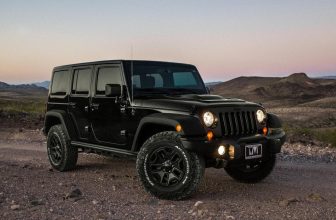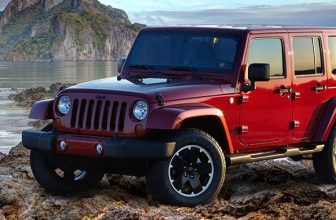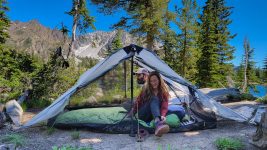
Six Moon Designs Lunar Duo Tent Review
PHOTO CREDIT: HEATHER ELDRIDGE (CLEVERHIKER.COM)
The Six Moon Designs Lunar Duo is revered in the ultralight backpacking world for its palace-like spaciousness, low weight, and affordable price tag.
We were first intrigued by the Lunar Duo over a decade ago when we saw it while thru-hiking the Pacific Crest Trail. Since then, we’ve pitched it hundreds of times on trips throughout the Rockies and all over the Pacific Northwest. Read on to see how the Duo stacks up against dozens of other backpacking tent designs we’ve tested over the years.
Quick Specs
MSRP: $395
LISTED WEIGHT: 2 lbs. 13 oz.
MEASURED WEIGHT: 2 lbs. 14.4 oz.
DIMENSIONS (LxWxH): 90 x 54 x 45 in.
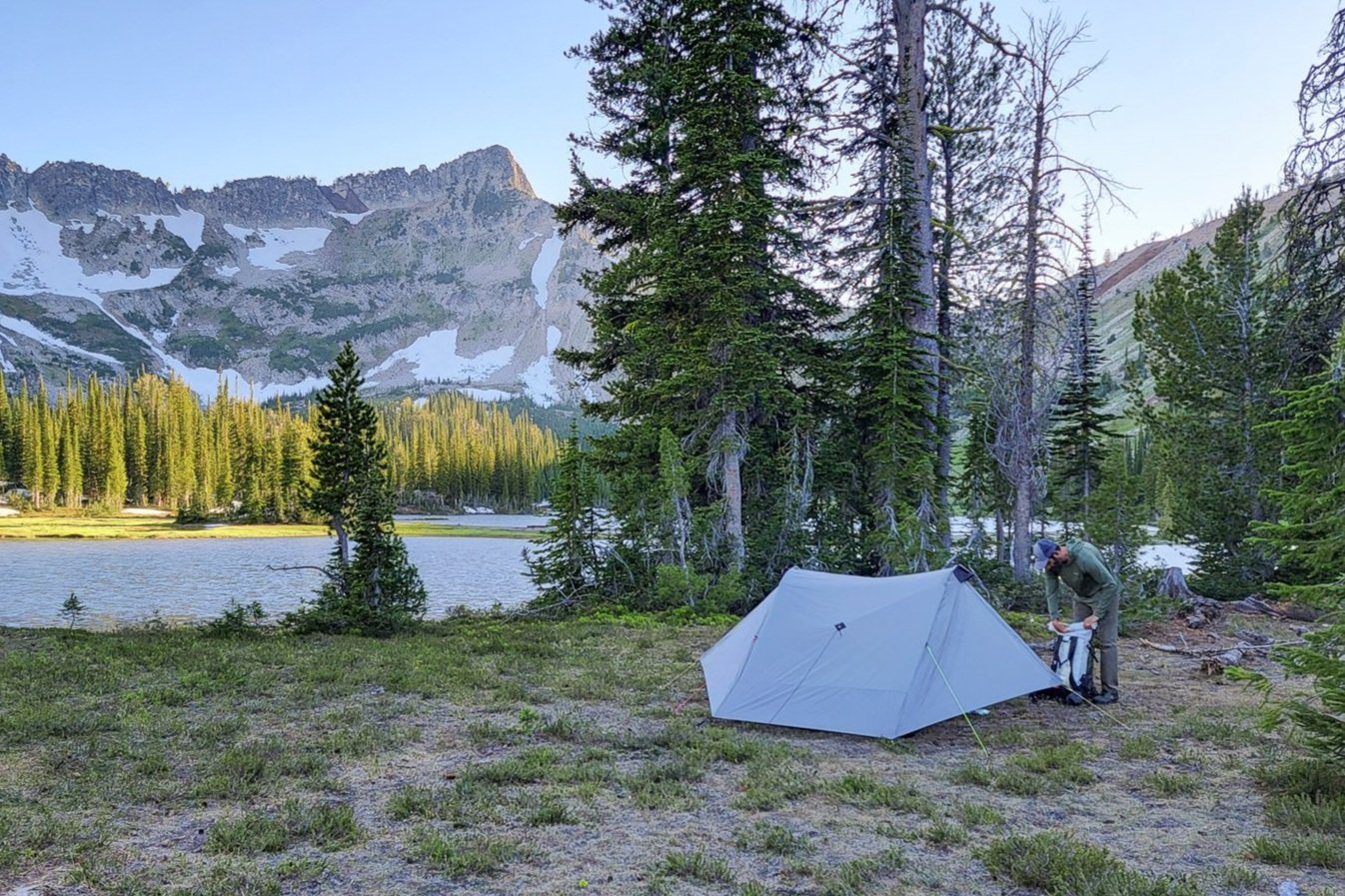
PHOTO CREDIT: HEATHER ELDRIDGE (CLEVERHIKER.COM)
Pros
EXCEPTIONALLY SPACIOUS – One of the standout attributes of the Lunar Duo is its exceptionally spacious interior. With a 45-inch peak height that’s well-distributed by the arched brow poles, a 7 ½-foot length, and generous 54-inch width (big enough for two wide sleeping pads), this tent is roomier than most 2-person tents by a fair amount. So, if you’re tall or want plenty of elbow room to make sharing space with a partner more comfortable, this may be the perfect tent for you.
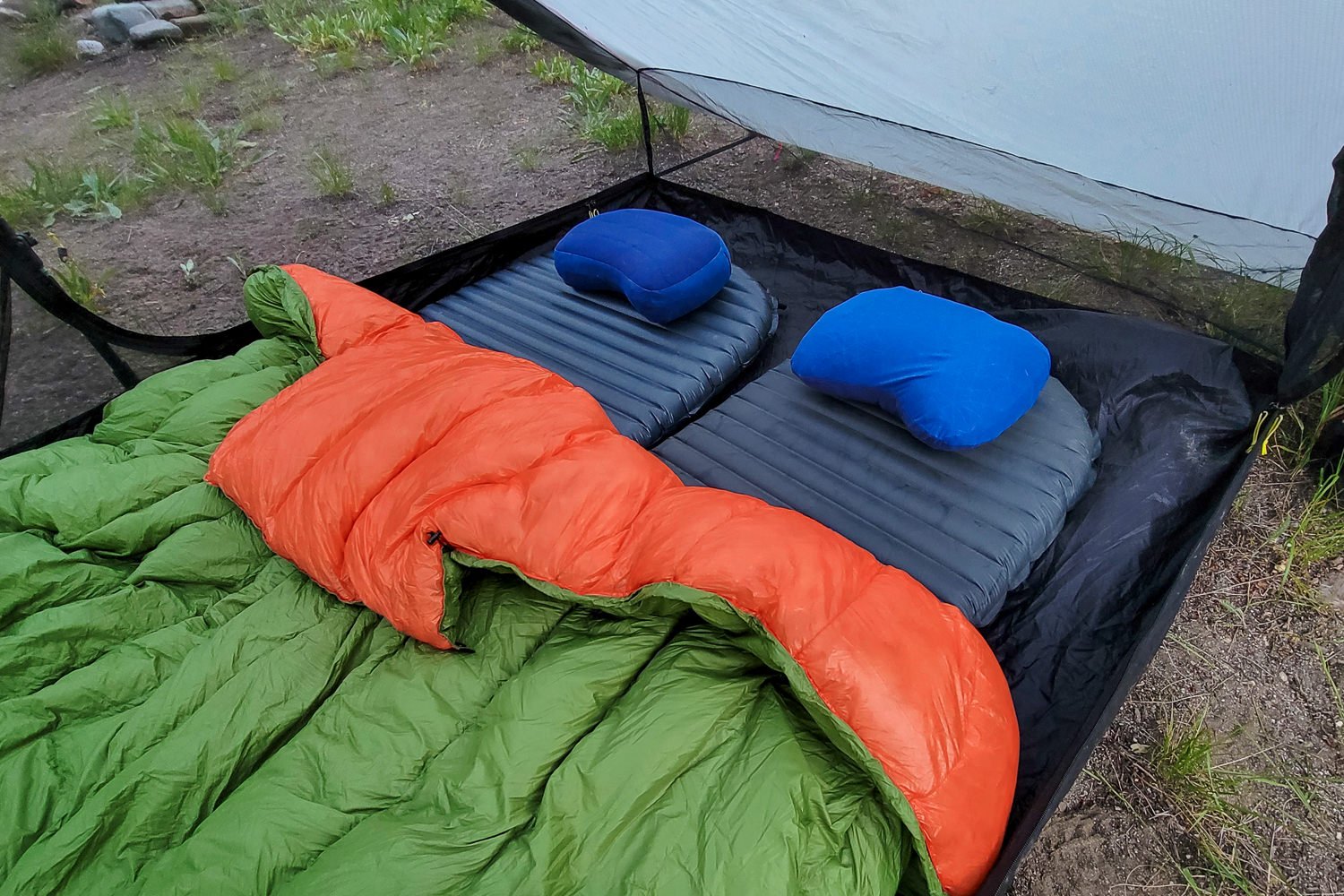
AFFORDABLE – With an MSRP less than $400, the Lunar Duo is among the least expensive ultralight backpacking tents on the market. Comparable tents from big brands and cottage companies often retail for $100-400 more. We’ve gotten a ton of use out of our Lunar Duo and it’s still going strong after thousands of miles on tough trails. Needless to say, we think it’s an excellent value, and you’ll be hard-pressed to find a lighter and more comfortable tent for the money.
The Lunar Duo is offered in an Explorer model ($395, 45 oz.) as well as an Outfitter model ($210, 57 oz.). We’re partial to the Explorer model for the weight and bulk savings, and we think it’s worth the extra cost over the long run. That said, we’ve used both models extensively and we think they’re both excellent backpacking tents.
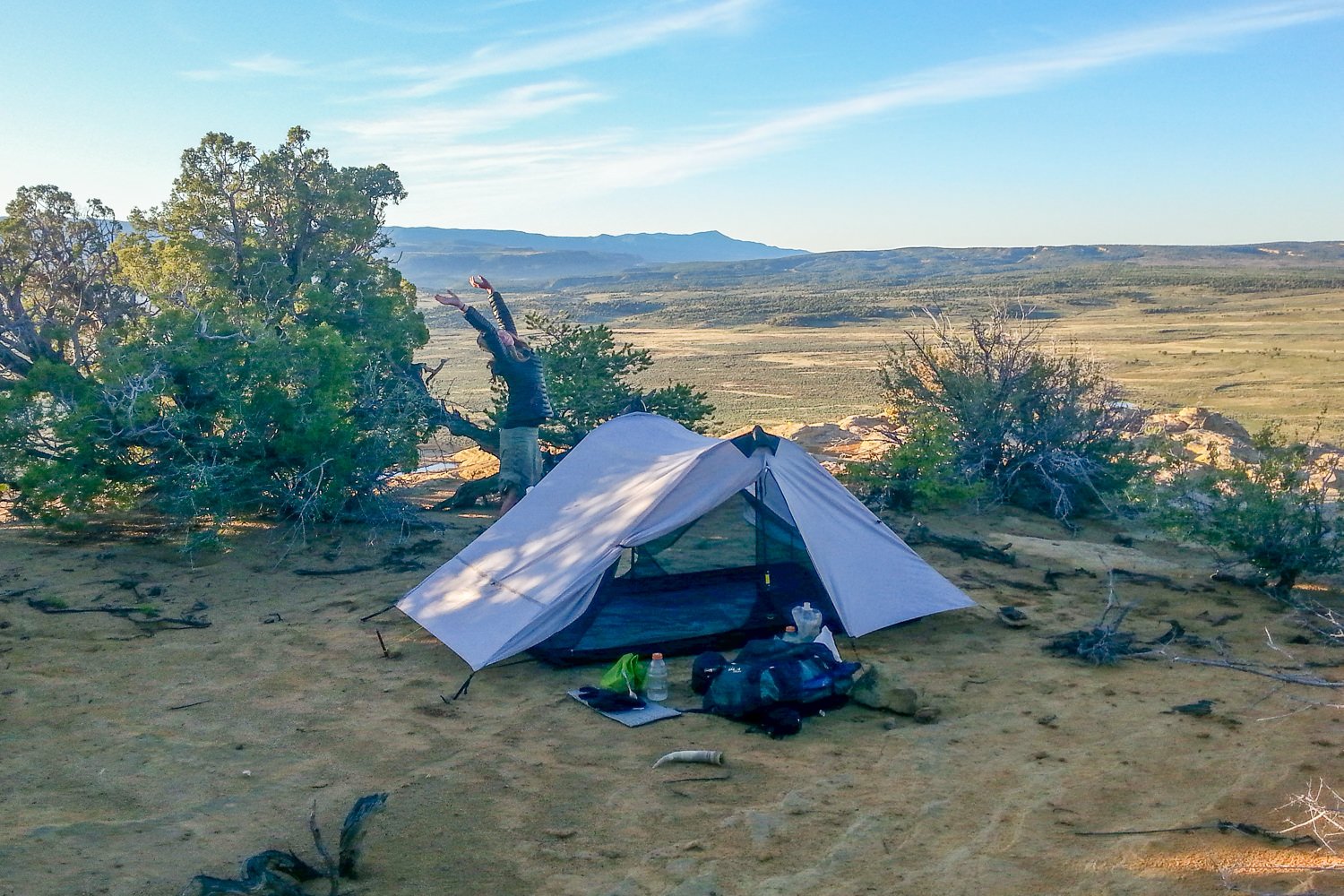
ULTRALIGHT – The Lunar Duo weighs 2 lbs. 13 oz. (45 oz.), which is very light for a 2-person 2-door tent – especially one with this much interior space. This weight doesn’t include tent stakes or poles, though, so be sure to take that into account when comparing it to freestanding or semi-freestanding tents.
The Lunar Duo is ultralight, but it isn’t the lightest or most compact tent out there. If you’re really serious about minimizing pack weight, you may want to consider even lighter options. We’ll touch on this a bit more later.
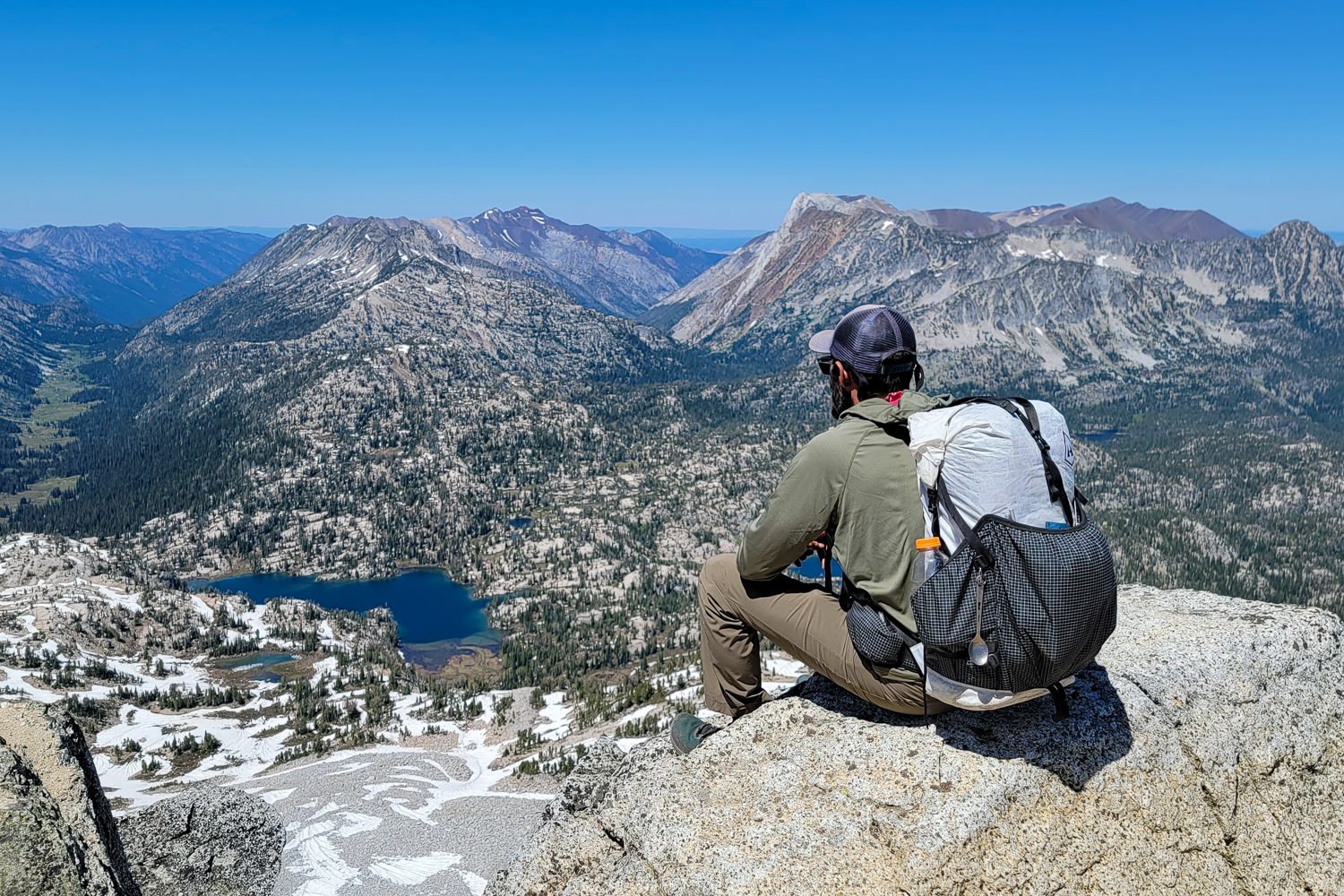
The Lunar Duo inside of the HMG SW 40L ultralight backpack – PHOTO CREDIT: HEather ELDRIDGE (CLEVERHIKER.COM)
EXCELLENT VENTILATION – There are hooded vents at the top of each door in the Lunar Duo’s rainfly, as well as plenty of airflow around the entire lower perimeter. The canopy is floating, so you can also raise or lower it to adjust how much of a gap you want between the bottom of the fly and the ground.
In clear conditions, the Duo’s vestibules can be rolled back completely for wide views and a cross breeze. Hooks on the guylines allow you to secure one, both, or no sides of the vestibules. This design gives you a lot of control over your tent’s ventilation, and allows you to quickly adapt to changing weather conditions.
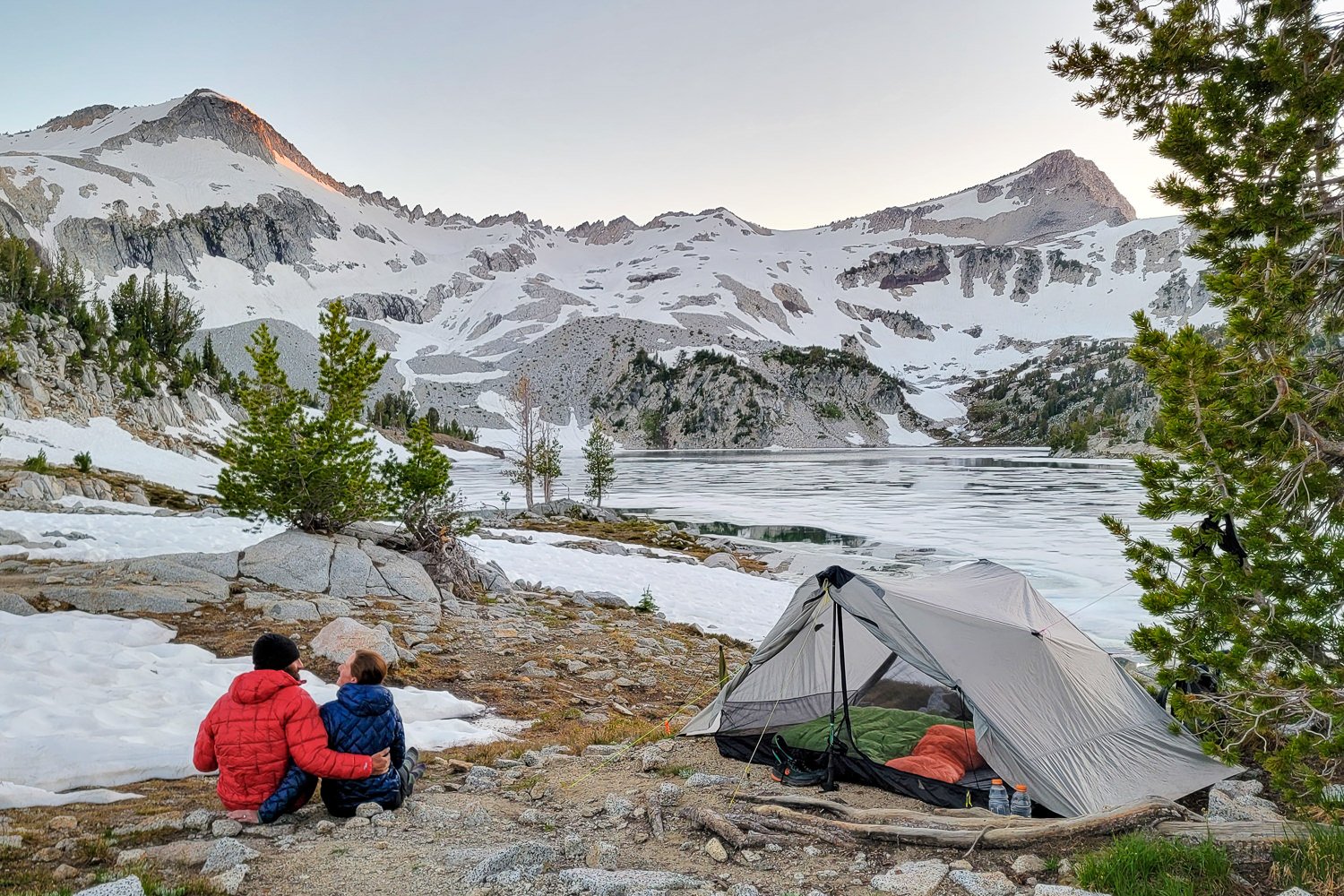
PHOTO CREDIT: HEATHER ELDRIDGE (CLEVERHIKER.COM)
TWO DOORS & XL VESTIBULES – Two doors and vestibules are practically essential in our book, especially when traveling as a pair. The Lunar Duo has a large door on each side, so there’s no waiting in line to get out of the weather or crawling over your partner when nature calls at night.
There’s also plenty of room in the oversized vestibules for hikers to store and access their gear. In fact, the vestibules on the Duo are some of the largest we’ve seen on a backpacking tent.
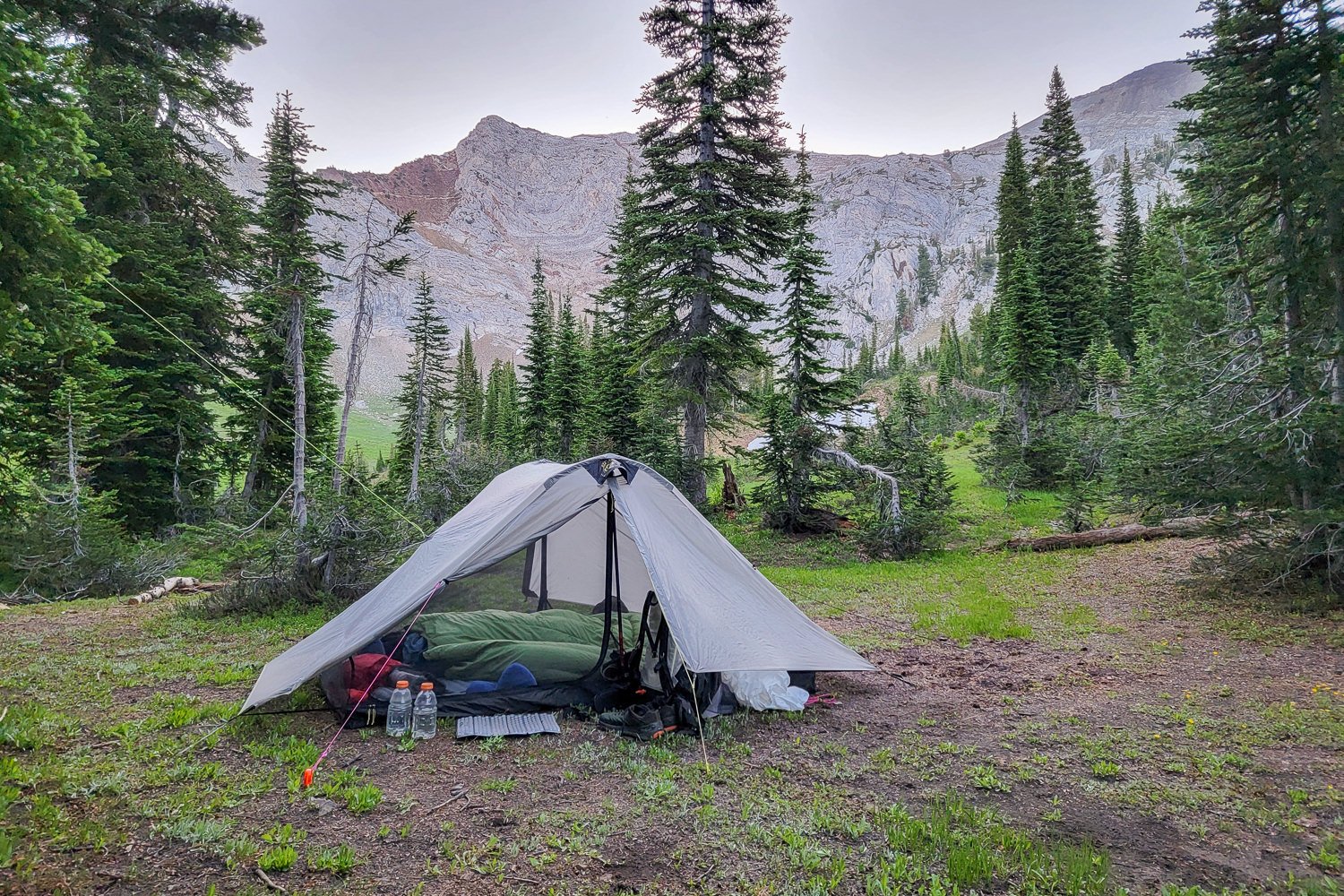
PHOTO CREDIT: HEATHER ELDRIDGE (CLEVERHIKER.COM)
DURABLE – The Lunar Duo is one of the few ultralight backpacking tents on the market made with 30-denier floor and canopy material. Thicker individual threads in the fabric make this tent tougher than a lot of backpacking tents which are often constructed with 20, 15, or even 10-denier material to save weight.
That’s great news for hikers with dogs or anyone who wants to be a bit more carefree with their gear. Since the floor is 30D, we usually don’t feel the need to use a footprint to protect this tent, which keeps more weight and bulk out of our packs.
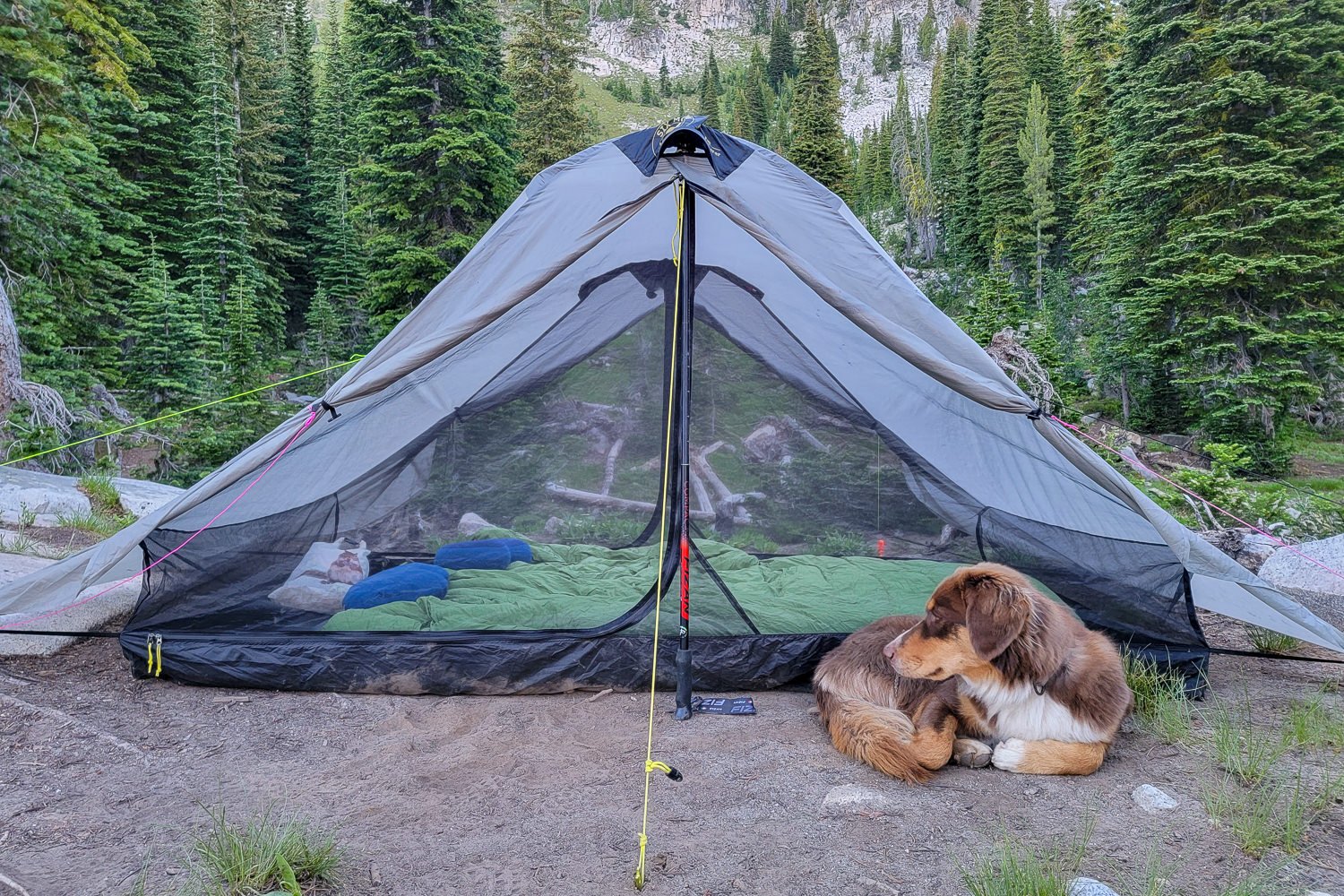
PHOTO CREDIT: HEATHER ELDRIDGE (CLEVERHIKER.COM)
EXCELLENT WEATHER PROTECTION – We’ve waited out countless downpours and hailstorms in the notoriously stormy Rocky Mountains in the Lunar Duo, and it’s always done an excellent job of keeping us comfortable and dry. Once it’s seam sealed (more on that below), the silnylon rainfly is fully waterproof and trustworthy in even the harshest summer storms.
The Lunar Duo is non-freestanding, so it’s critical to pitch it taught, making sure the stakes have good purchase and you’re using all the guyout points when high winds are expected. We’ve been through some extremely turbulent winds in this tent, and though the experience wasn’t entirely stress-free, it gave us full confidence in the Lunar Duo for weather protection.
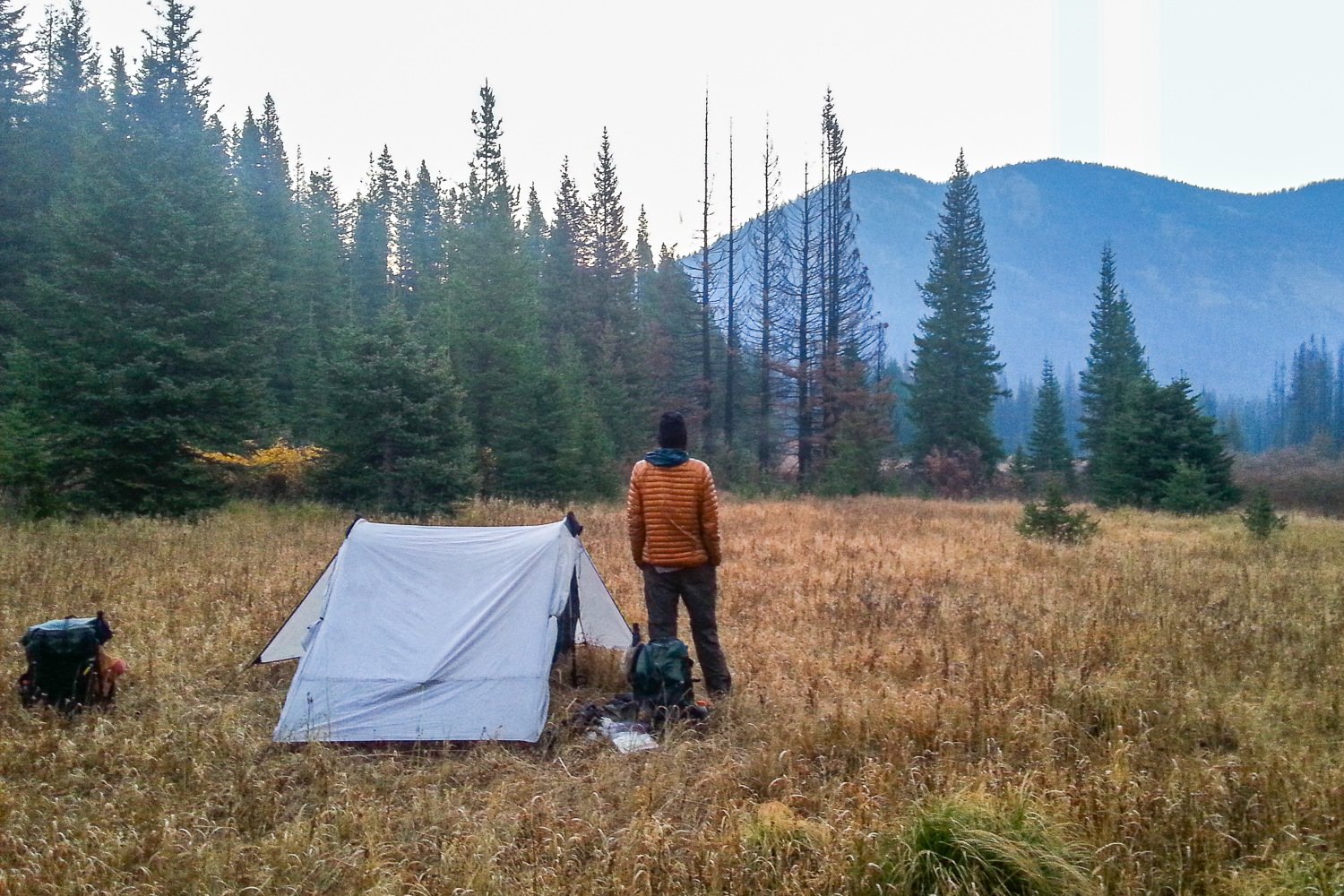
PHOTO CREDIT: HEATHER ELDRIDGE (CLEVERHIKER.COM)
FULL INSECT PROTECTION – Unlike some ultralight tarp shelters, the Duo is fully enclosed to keep insects and critters at bay. It has a built-in bathtub floor and an attached mesh inner tent that zips shut, so you can rest easy knowing you aren’t going to wake up with a spider on your face. A single-wall tent like the Lunar Duo is a good happy medium for those who want their shelter to be light, but also bug-free.
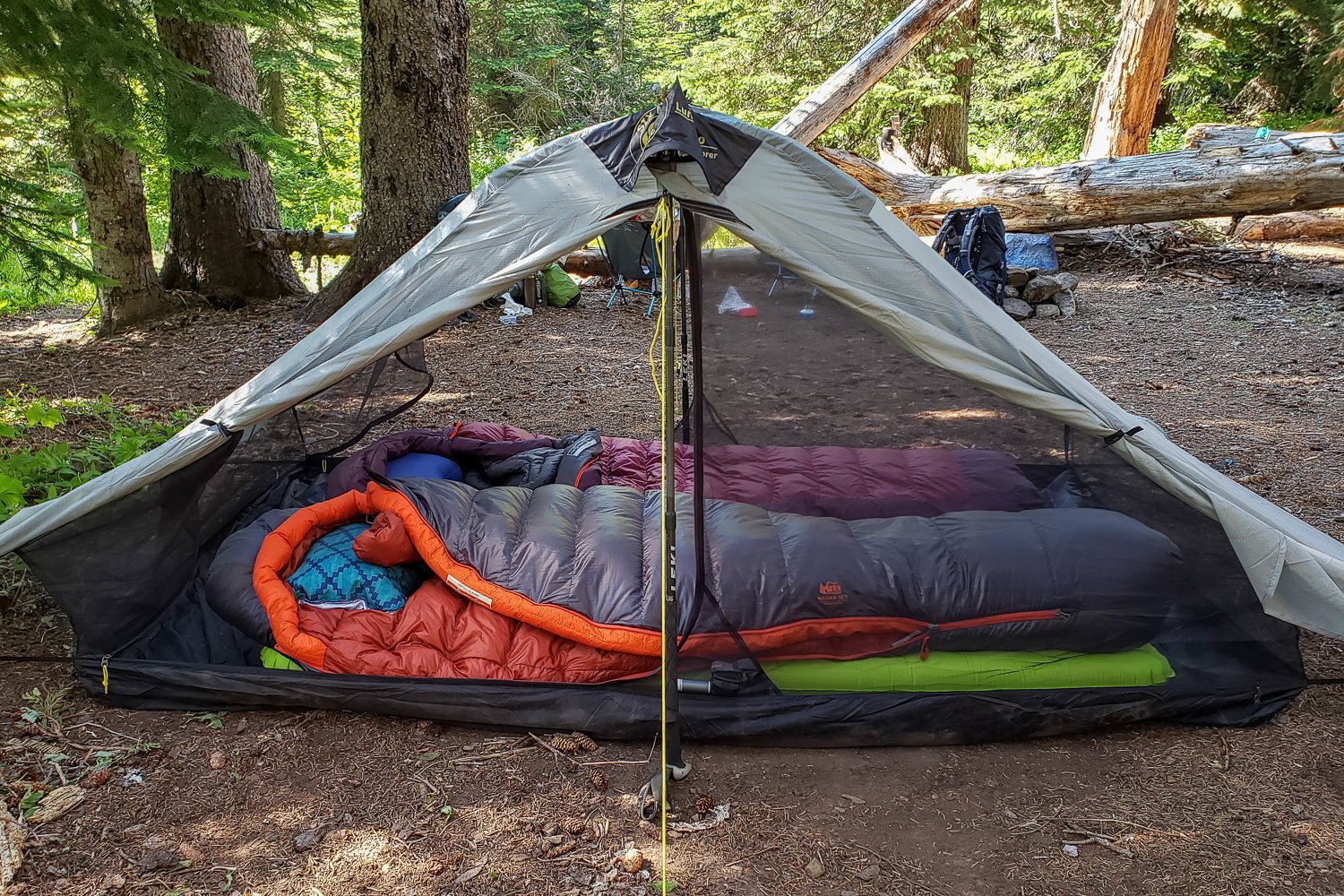
PHOTO CREDIT: HEATHER ELDRIDGE (CLEVERHIKER.COM)
RE-TENSIONABLE FROM INSIDE – Another feature that makes the Lunar Duo unique is that the main guylines can be re-tensioned from inside the tent. This comes in really handy – especially when it rains – because silnylon tends to sag when cold and wet, leaving you with a floppy shelter blowing in the wind. With the Duo, you can re-tighten your guylines without having to get out of your sleeping bag.
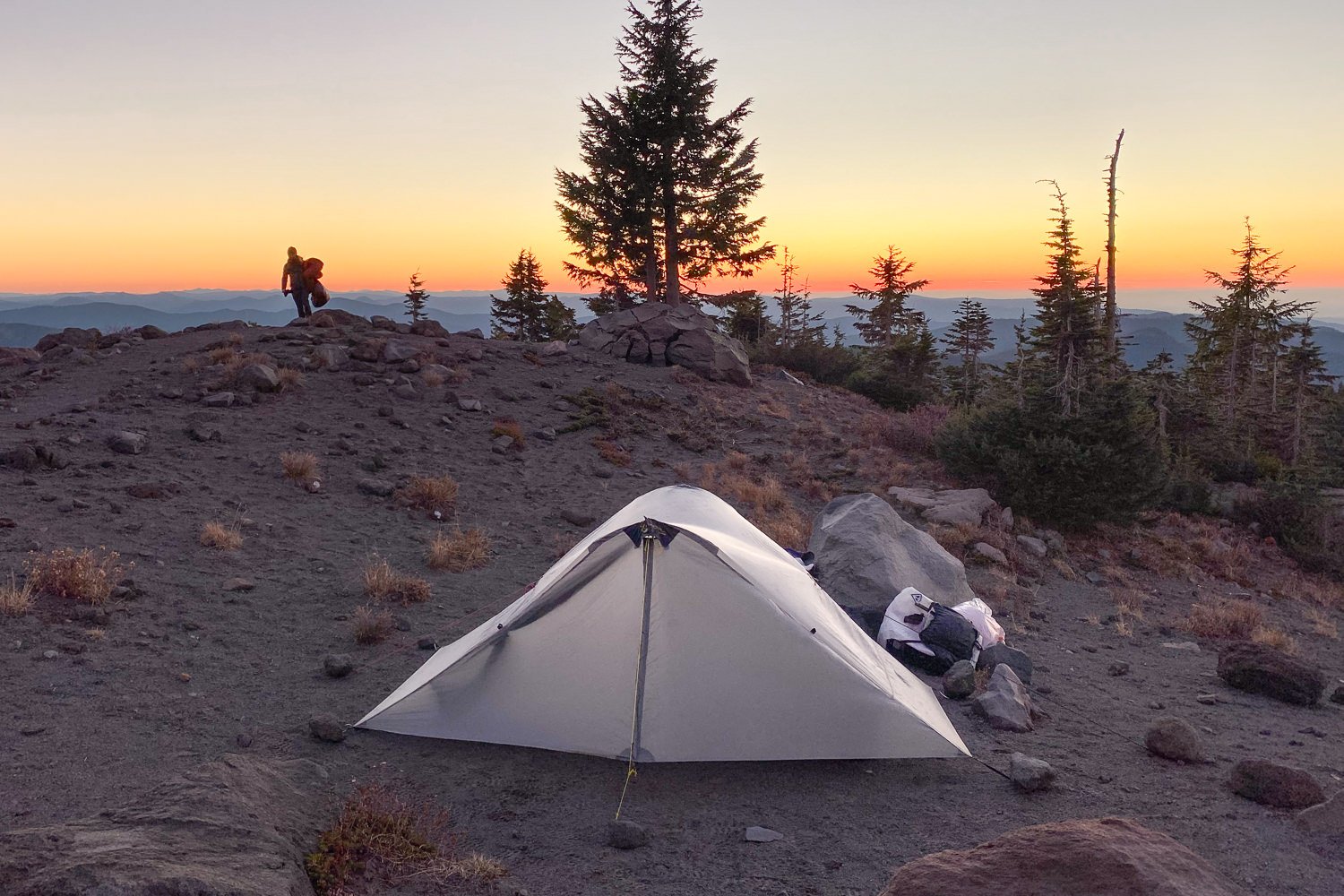
PHOTO CREDIT: HEATHER ELDRIDGE (CLEVERHIKER.COM)
Cons
HEAVIER THAN SOME – The Lunar Duo (45 oz.) is very lightweight, but it’s significantly heavier than some of the lightest ultralight non-freestanding tents. You could save 1-2 pounds by choosing a tent like the Zpacks Duplex (18.5 oz.), Triplex (21.6 oz.), or HMG Unbound 2 (24 oz.). These tents are all made with Dyneema Composite Fabric (DCF) though, which almost doubles the cost. If saving weight is a top priority for you, it could be well worth the investment to buy one of these top-of-the-line ultralight tents. If you’d rather carry a little more weight and save a bunch of money, the Lunar Duo is an excellent choice.
The Gossamer Gear The Two ($320) is a solid option for ultralight backpackers on a budget. It costs less than the Lunar Duo, and it’s quite a bit lighter at 23.5 oz., but it’s made with thin 10-denier fabric and isn’t nearly as roomy as the Duo. Another budget option for ultralight backpackers is the SMD Haven ($375). It weighs 38.1 oz., so it’s a little lighter than the Lunar Duo, and it comes with a tarp and inner net that can be used together or separately. It’s not as spacious, but it’s a good alternative for hikers that want the versatility of a tarp for fast and light trips.
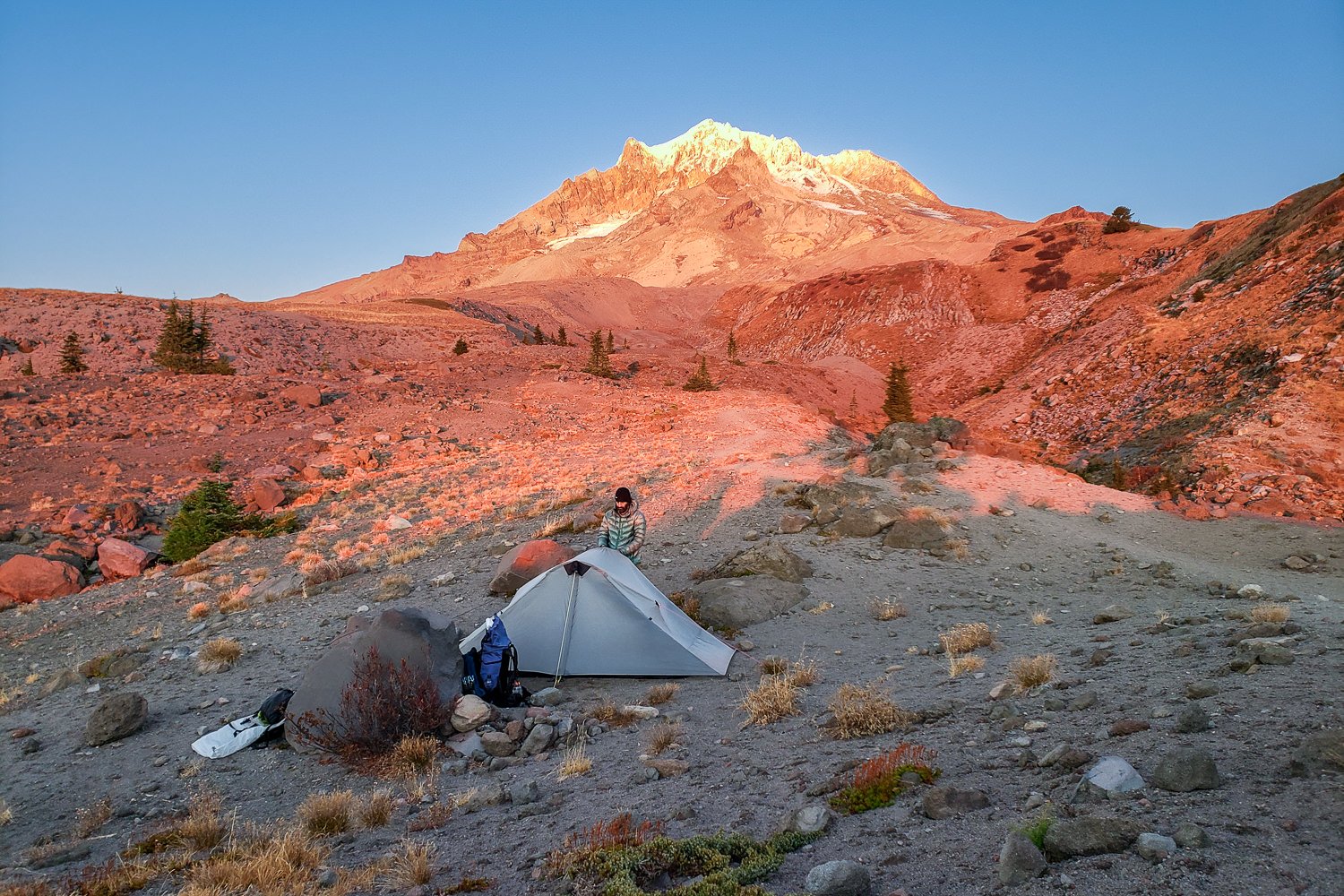
PHOTO CREDIT: HEATHER ELDRIDGE (CLEVERHIKER.COM)
STAKES & POLES NOT INCLUDED – Tent stakes and poles are not included with the Lunar Duo, so you’ll need to consider the added cost and weight of these to complete your setup. Most hikers use a pair of adjustable trekking poles to support the Lunar Duo. If you don’t use trekking poles, you’ll need to pack two carbon fiber poles ($40, 1.8 oz. each) or aluminum tent poles ($15, 3 oz. each) to pitch this tent.
We almost always use eight tent stakes to pitch the Lunar Duo; four for the corners, two for the vestibules, and one each at the head and foot of the tent. It’s critical to choose stakes with solid holding power for this tent. These All One Tech Aluminum Stakes are affordable and have worked well for us in most terrain.
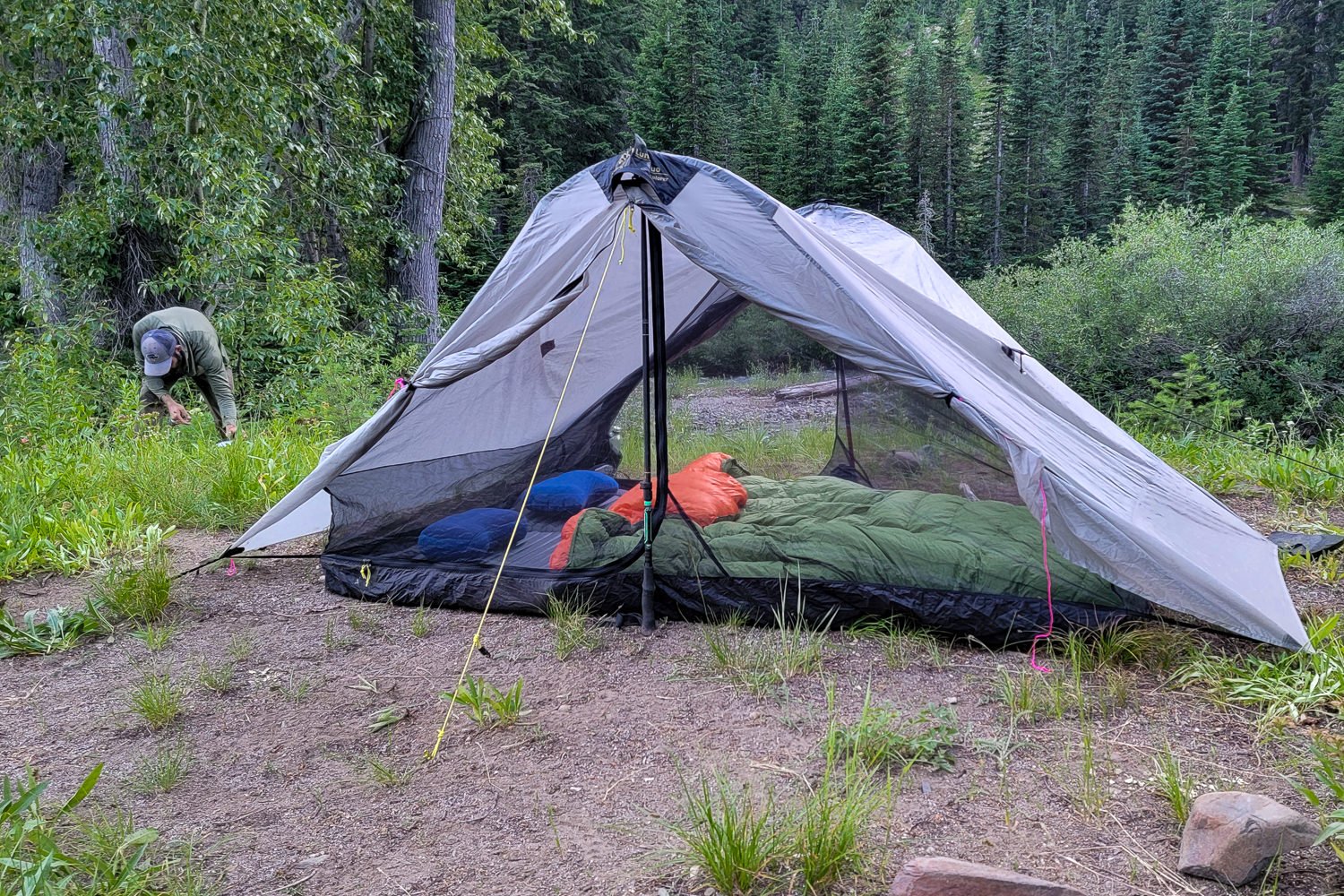
PHOTO CREDIT: HEATHER ELDRIDGE (CLEVERHIKER.COM)
NOT FACTORY SEAM-SEALED – The Lunar Duo needs to be seam sealed to be fully waterproof, and we think it’s a bit unfortunate that it doesn’t automatically come that way. You can pay Six Moon Designs $35 for their seam sealing service, or you can do it yourself with a product like Seam Grip. If you like DIY projects, seam sealing isn’t too bad to do yourself, but we generally recommend paying for the manufacturer to seam seal so your tent will be ready to go when it arrives.
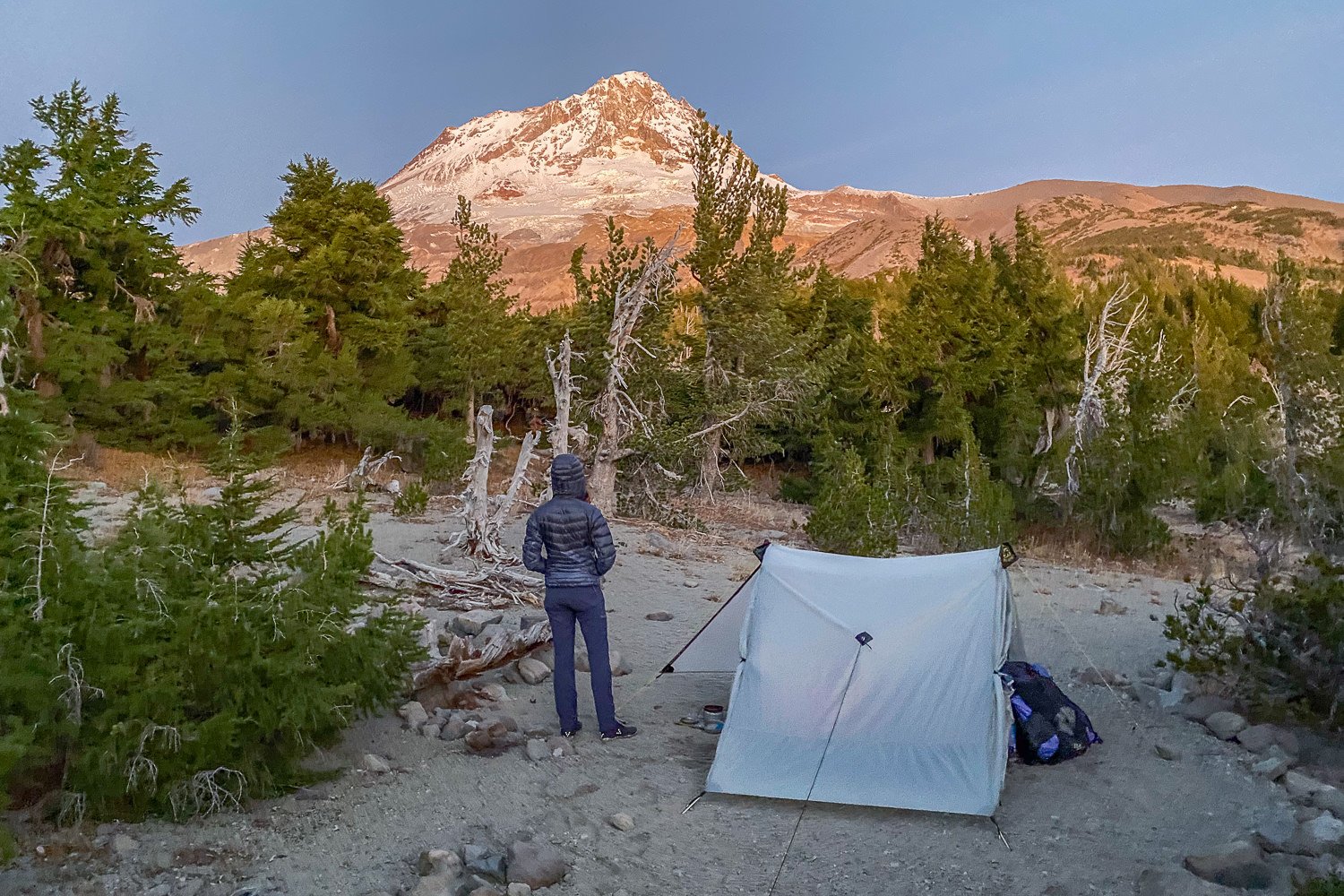
PHOTO CREDIT: HEATHER ELDRIDGE (CLEVERHIKER.COM)
LEARNING CURVE TO PITCH – There’s a bit of a learning curve to setting up a non-freestanding tent like the Lunar Duo. We recommend following SMD’s Lunar Duo Setup Instructions and practicing before your first trip to learn how to get the pole height and spacing just right. After a couple practice pitches, it’ll only take you 5-10 minutes to set up the Lunar Duo. That said, it will never be quite as quick and easy as pitching a typical freestanding tent.
Non-freestanding tents like the Duo can also be trickier to set up when the ground is too hard for tent stakes or is so soft (think sand) that tent stakes won’t hold. In situations like this you’ll need to get creative with logs, rocks, or other objects to help tie down your shelter. In the end, with a non-freestanding tent like the Lunar Duo you’ll often spend a bit more time in camp perfecting the pitch of your tent, but your pack will feel lighter all day long on the trail.
CREDIT: HEATHER ELDRIDGE (CLEVERHIKER.COM)
CONDENSATION – A general con of single-wall tents is that they don’t have a mesh barrier to separate the hikers inside from the rain fly. That means you could potentially have condensation droplets on the inside of the tent in chilly, humid conditions. When this happens, it’s uncomfortable to rub against the interior of the rainfly, which will feel cold and wet. On the rare occasion it’s necessary, we use a small PackTowl to carefully wipe down the inside of the fly.
In our experience, the Lunar Duo performs better than most single-wall tents as far as interior condensation goes because of its excellent ventilation. It also has more headspace than your average tent, so it’s less likely that your head or the foot of your sleeping bag will make contact with the rainfly.
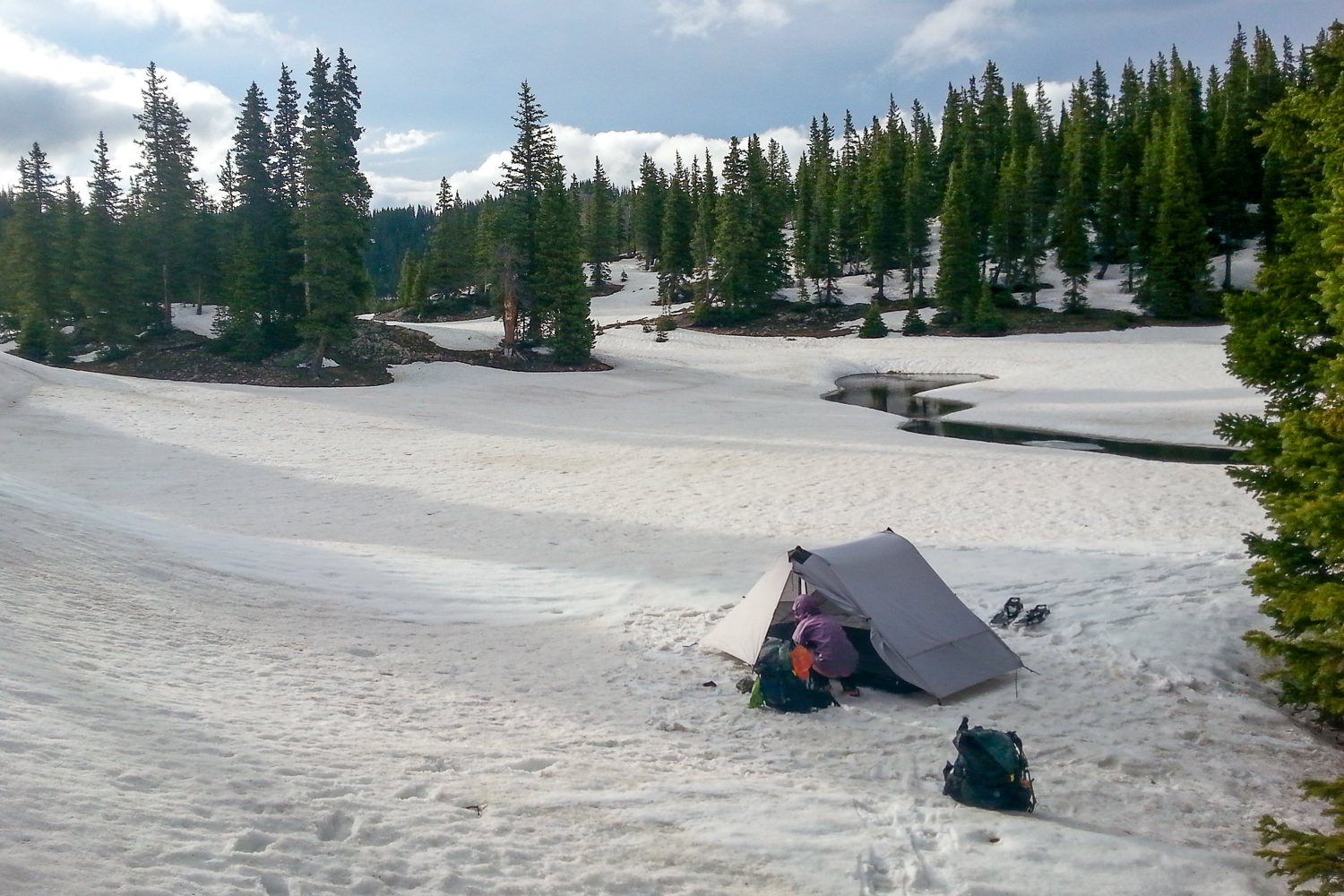
PHOTO CREDIT: HEATHER ELDRIDGE (CLEVERHIKER.COM)
REQUIRES BIGGER CAMPSITES – We love the Lunar Duo’s spacious interior and oversized vestibules, but the downside is that you’ll need a bigger area to pitch the tent. Occasionally, we’ve had to pass up smaller campsites in search of a suitable place to pitch the Lunar Duo, but that’s rarely an issue.
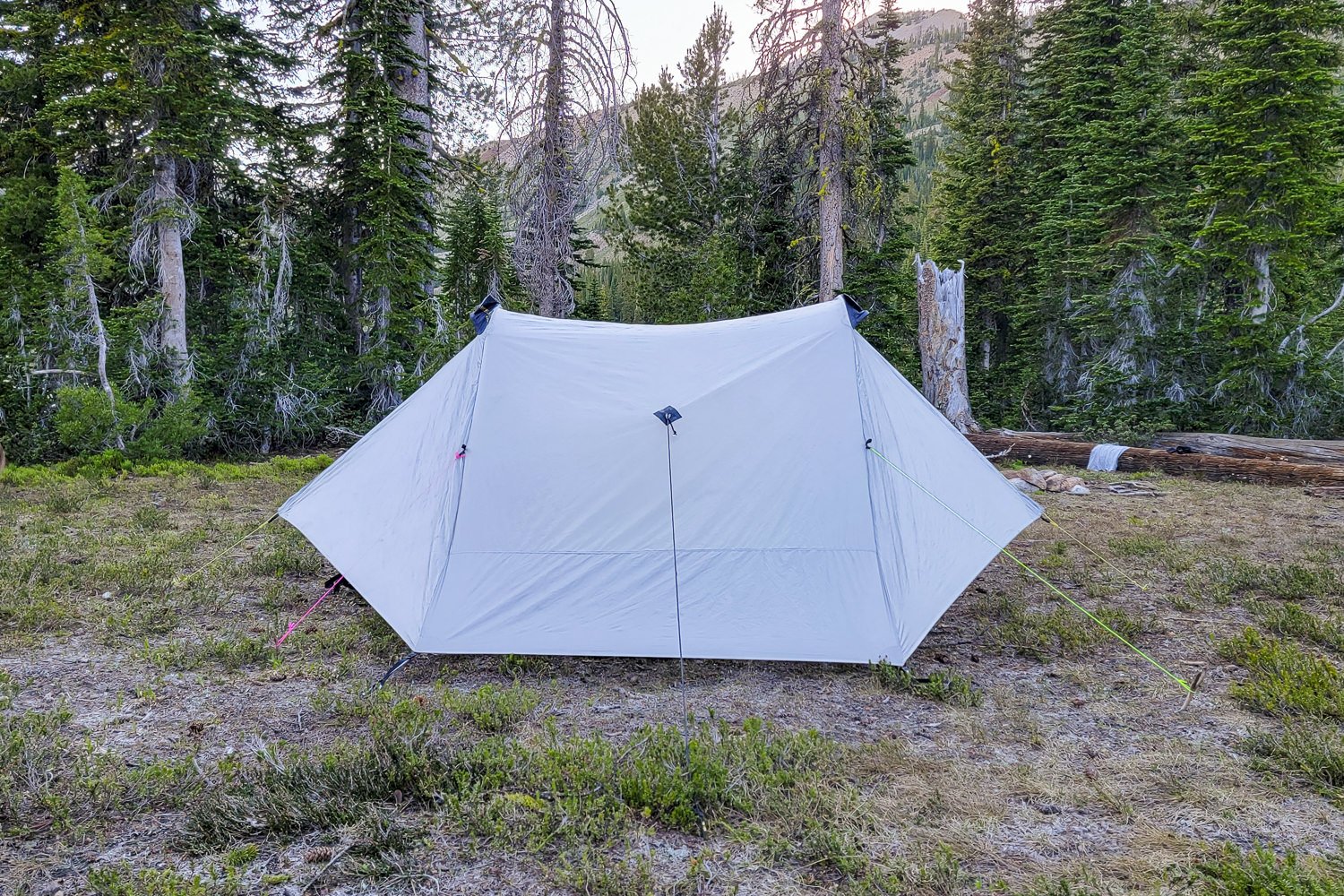
PHOTO CREDIT: HEATHER ELDRIDGE (CLEVERHIKER.COM)
BOTTOM LINE
If you’re looking for a roomy, ultralight shelter at an exceptionally affordable price, there are few tents that compare to the Six Moon Designs Lunar Duo.
Though there are inherent downsides with any non-freestanding tent – a bit harder to pitch and condensation management – we generally feel that the benefits of the Duo heavily outweigh the cons.
It’s tough to find backpacking tents that strike such a great balance between weight, interior space, and price like the Lunar Duo. In addition, this tent is more durable than many ultralight tents, so you can count on it to last for years of adventure.
We think the Lunar Duo is an excellent choice for backpacking pairs, which is why it’s featured on our lists of the Best Backpacking Tents and Best Ultralight Tents.
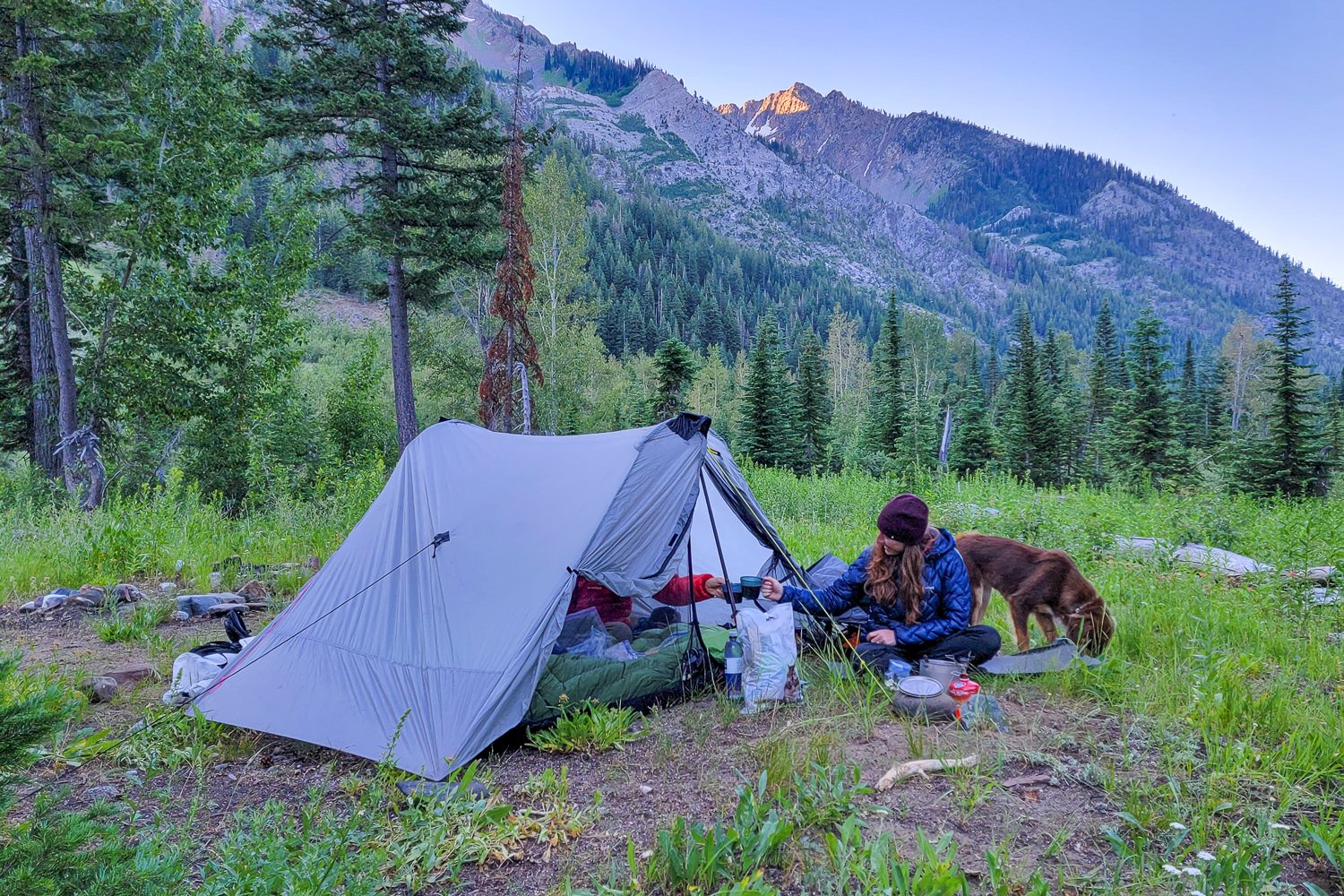
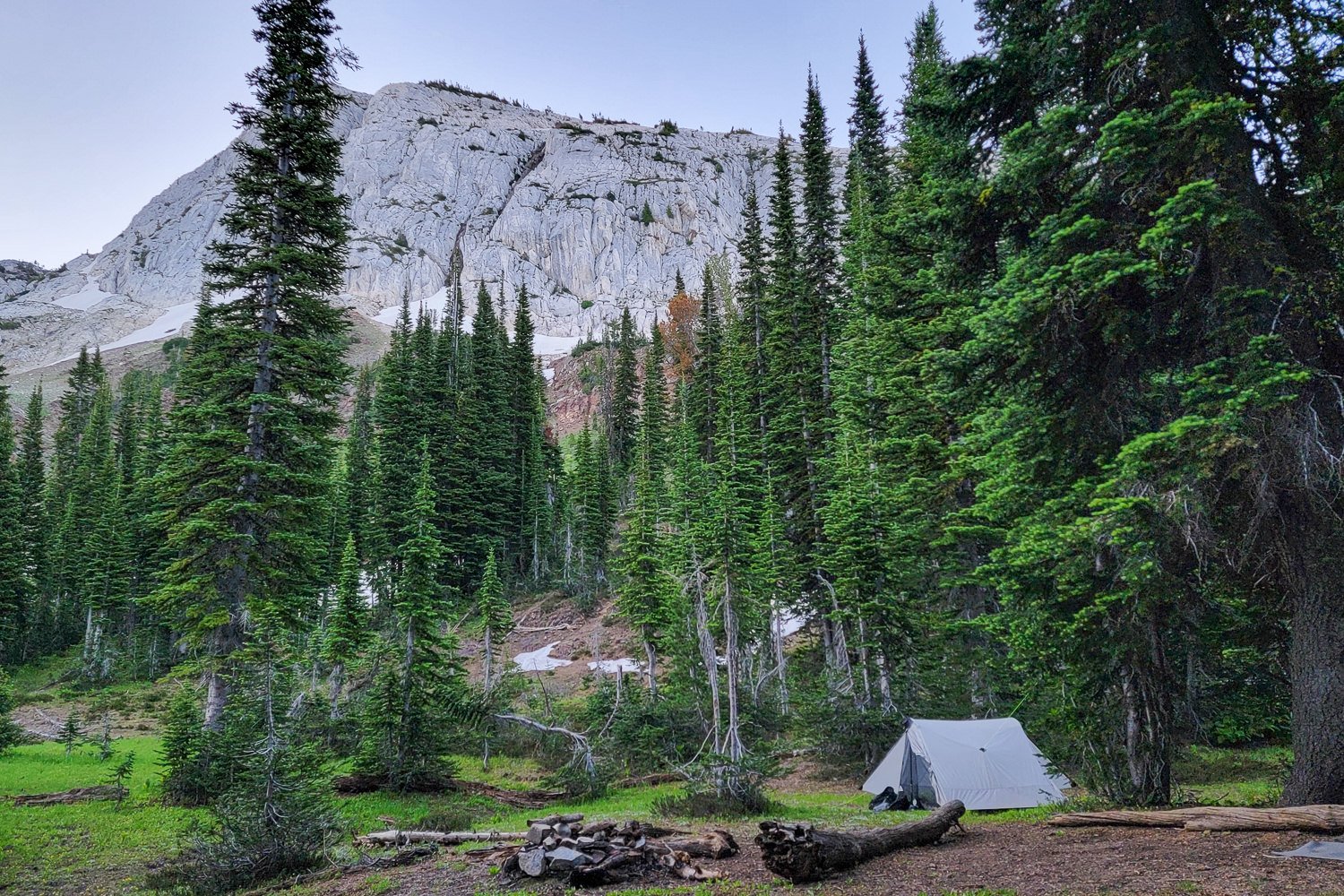
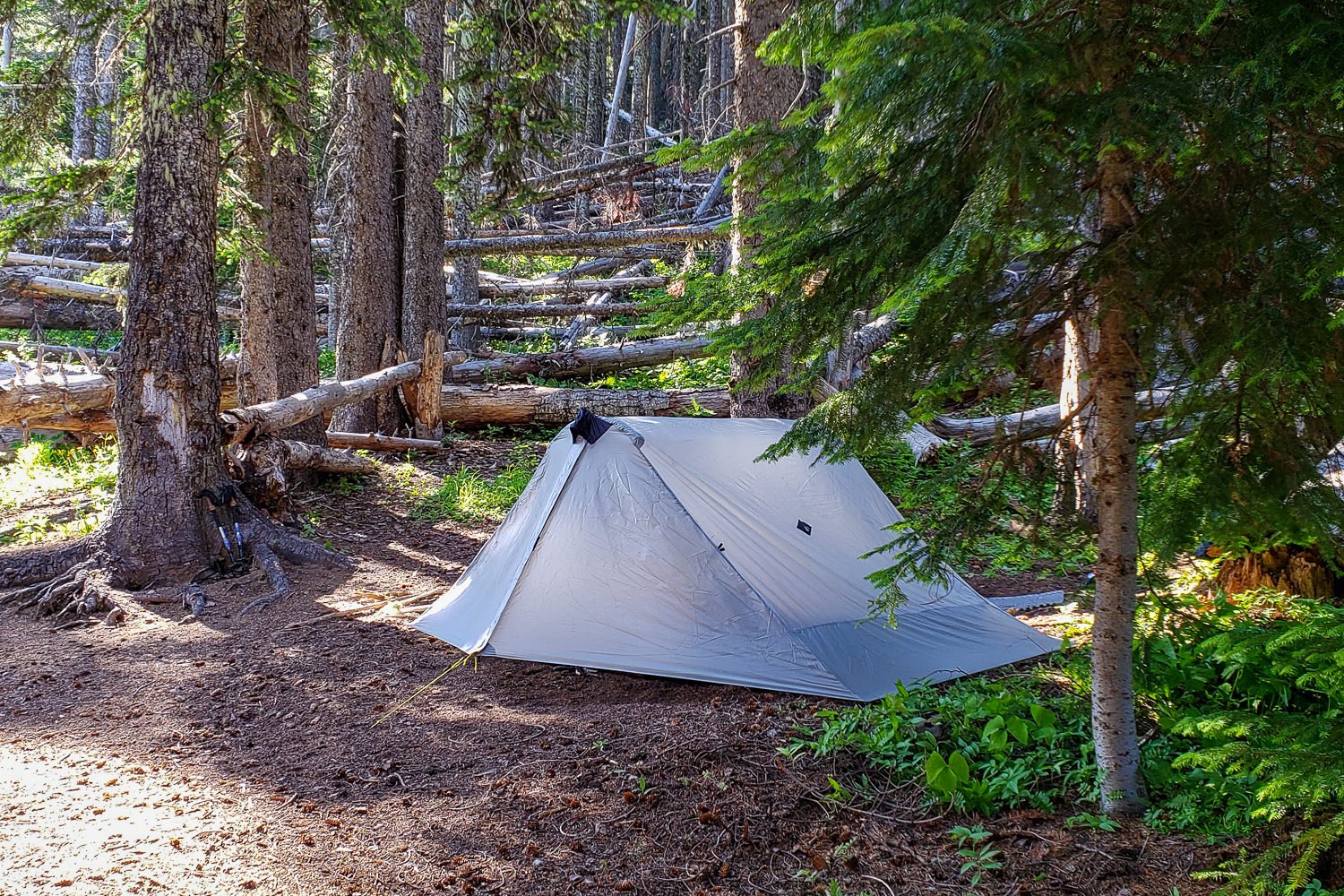
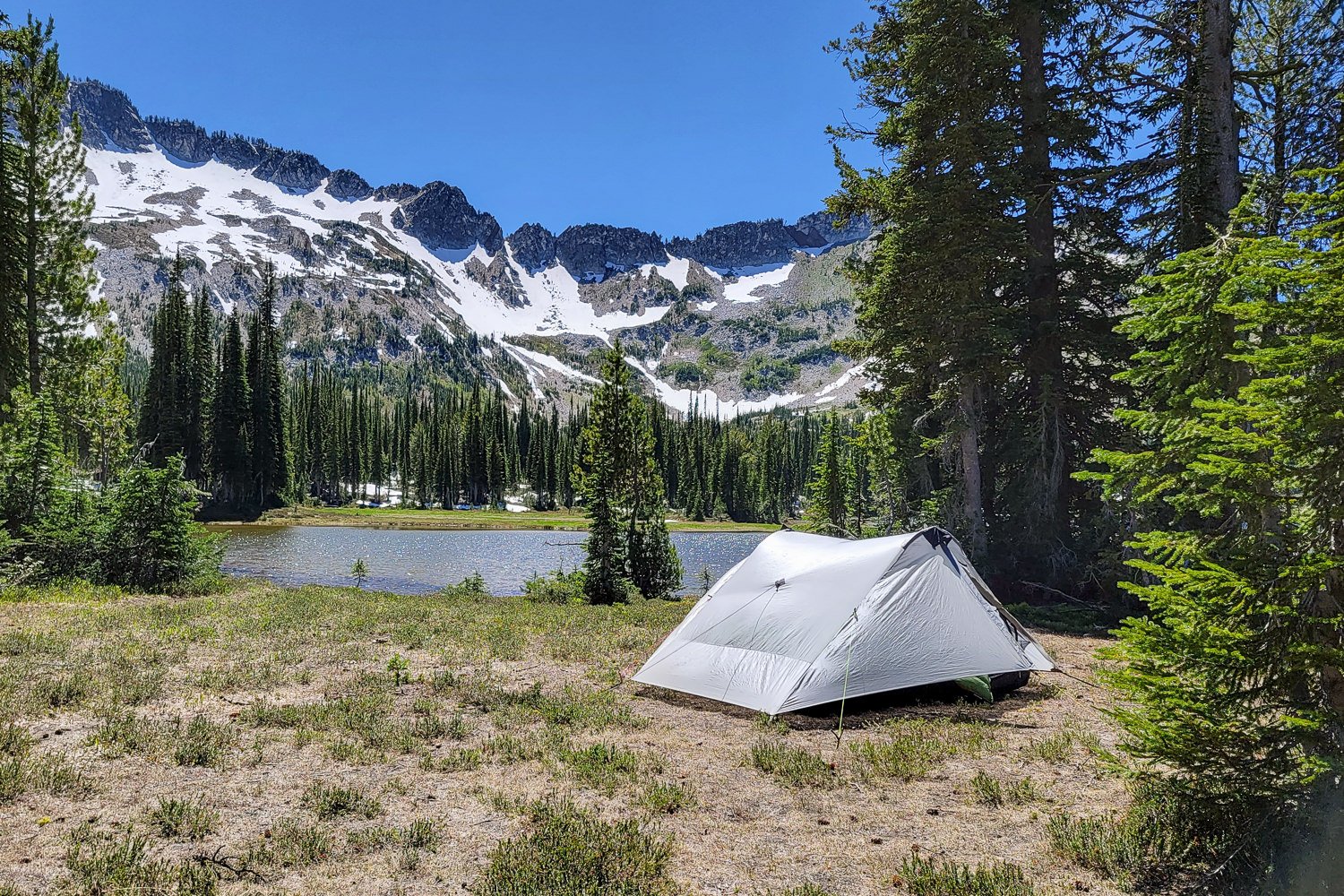
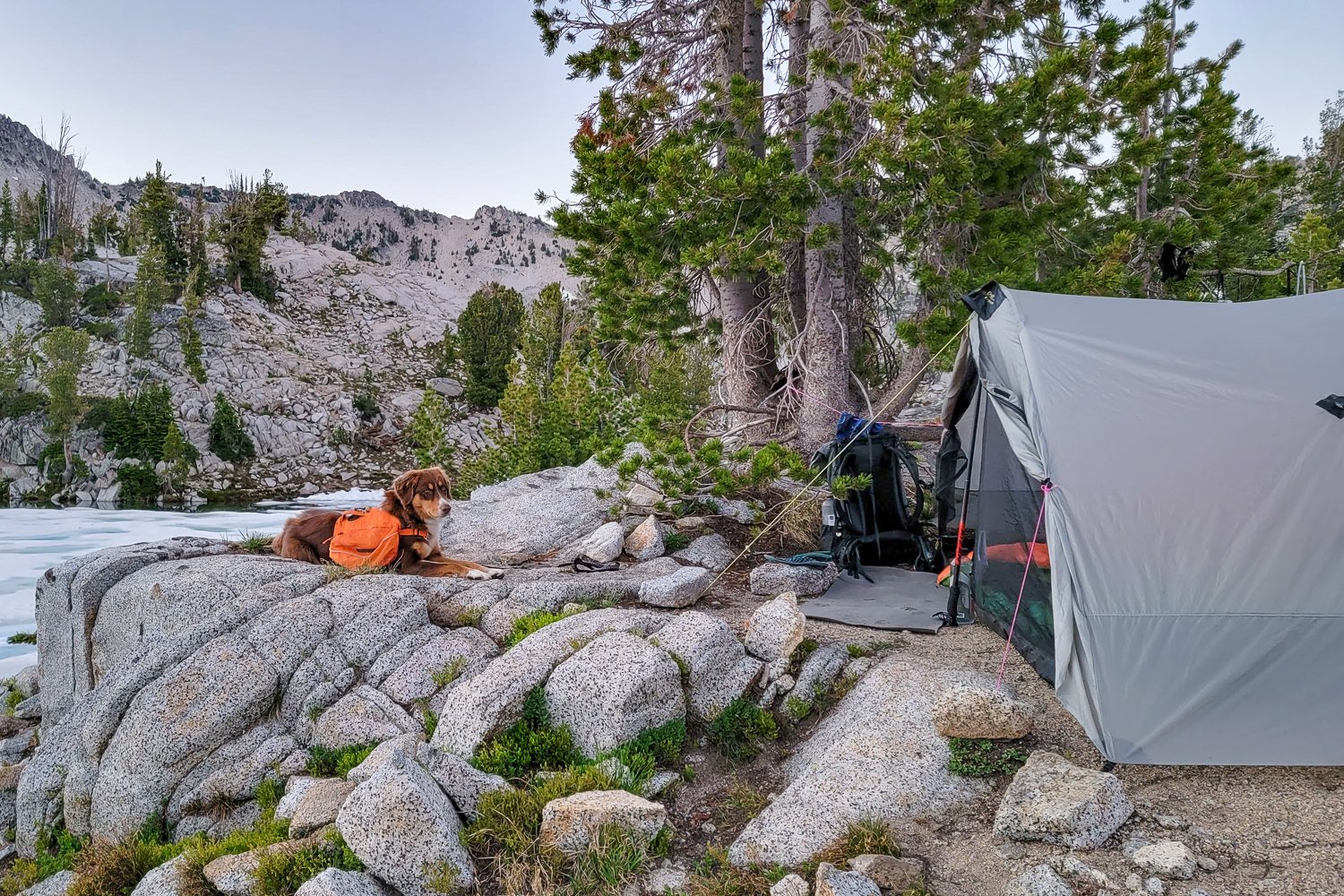
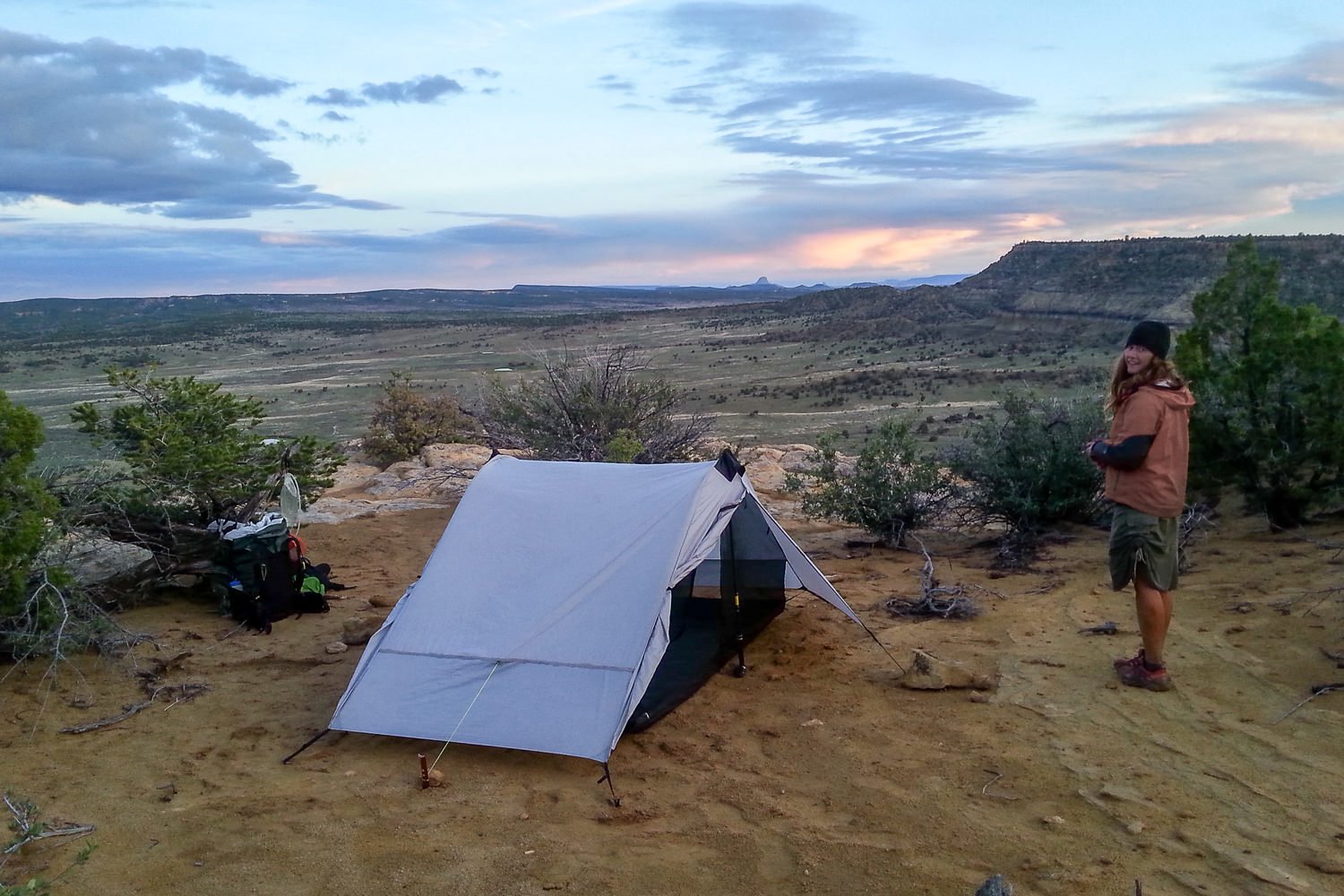
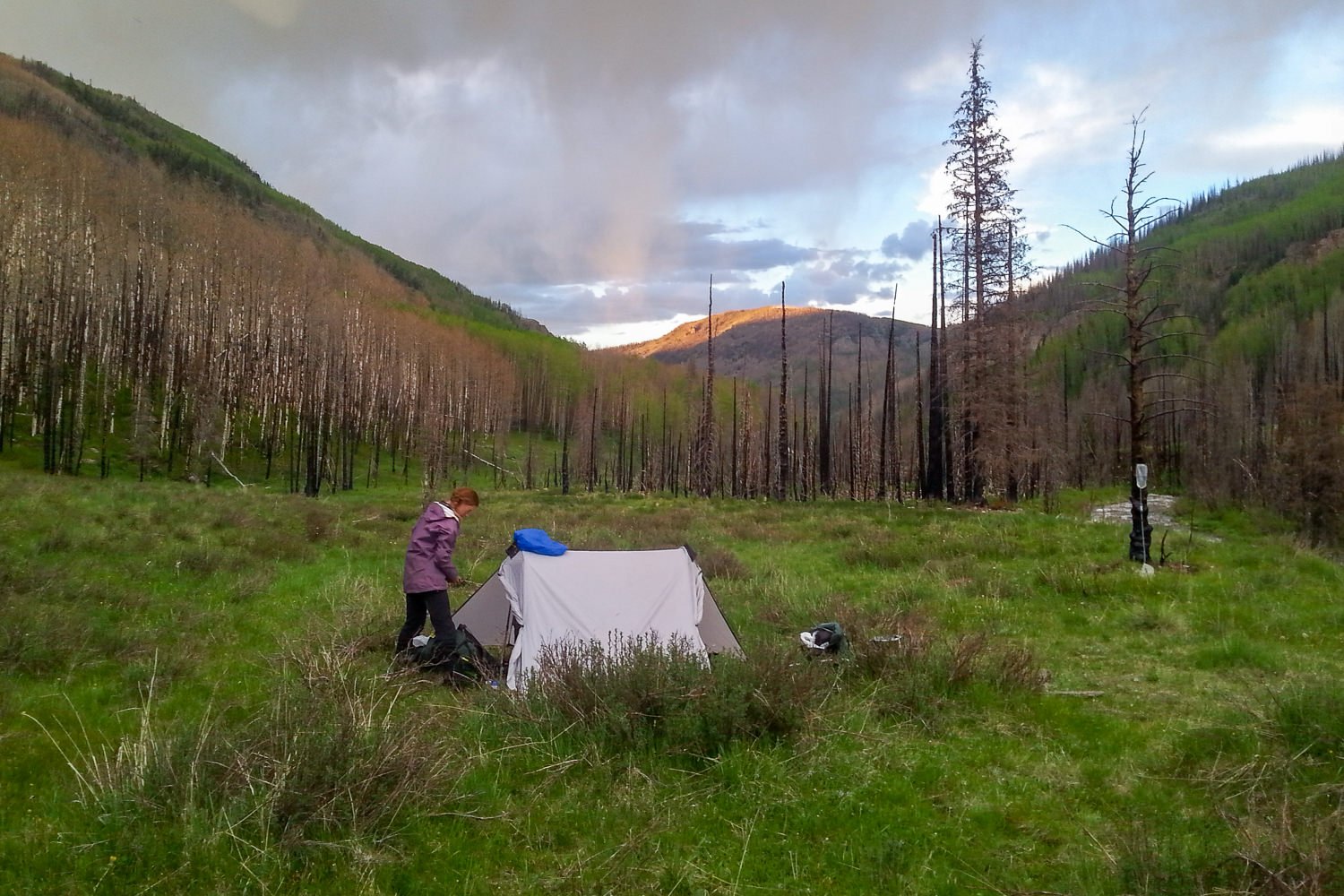
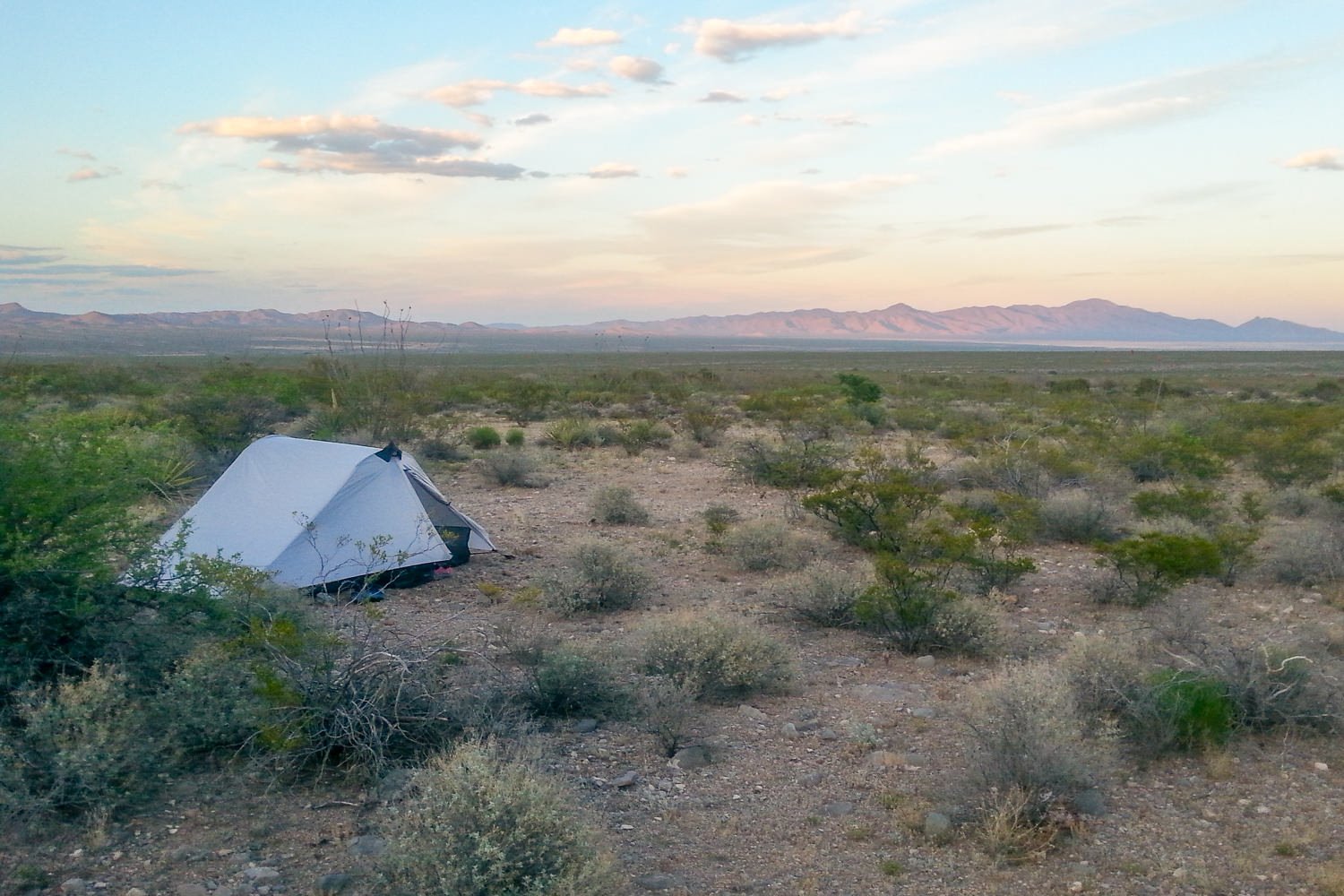
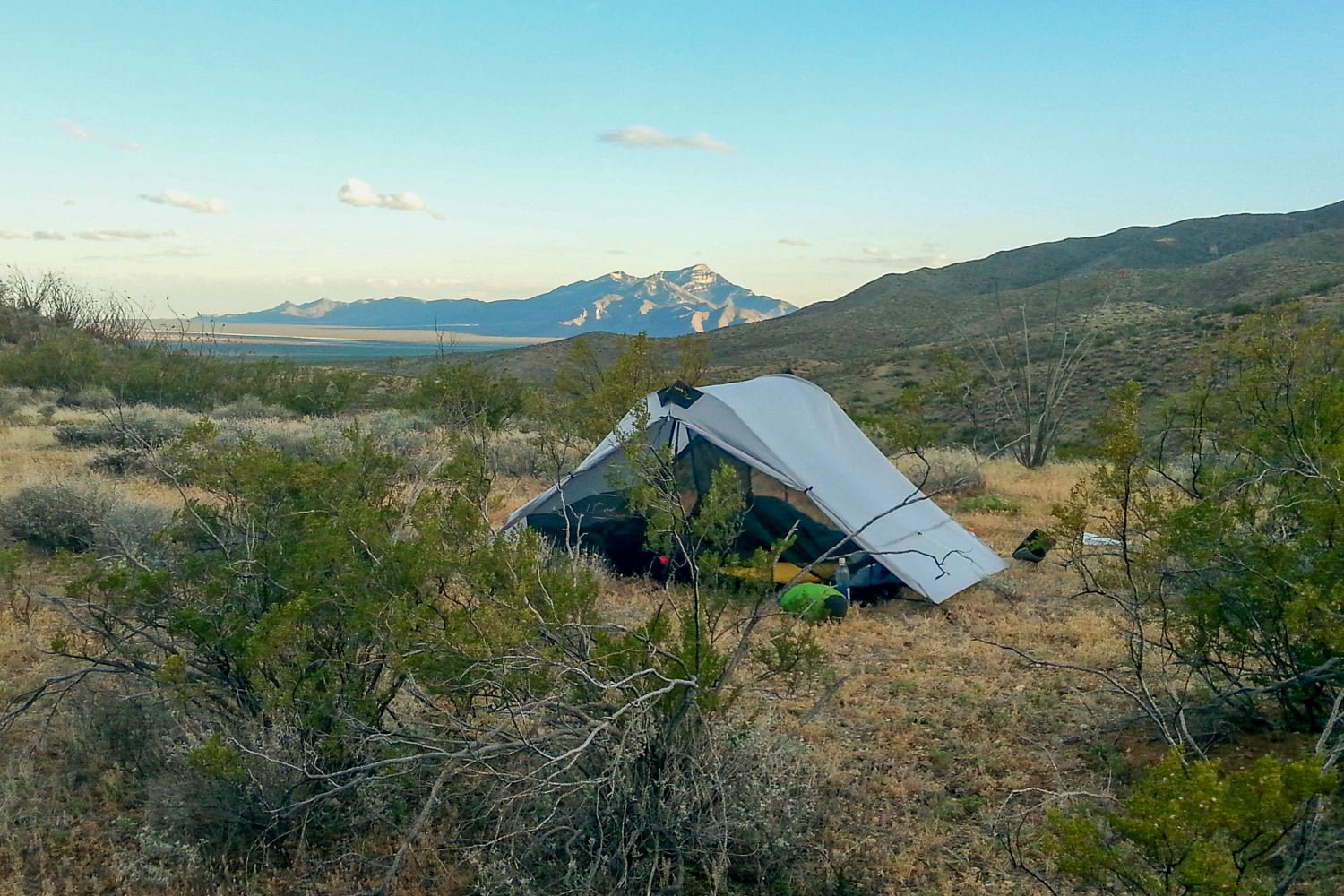
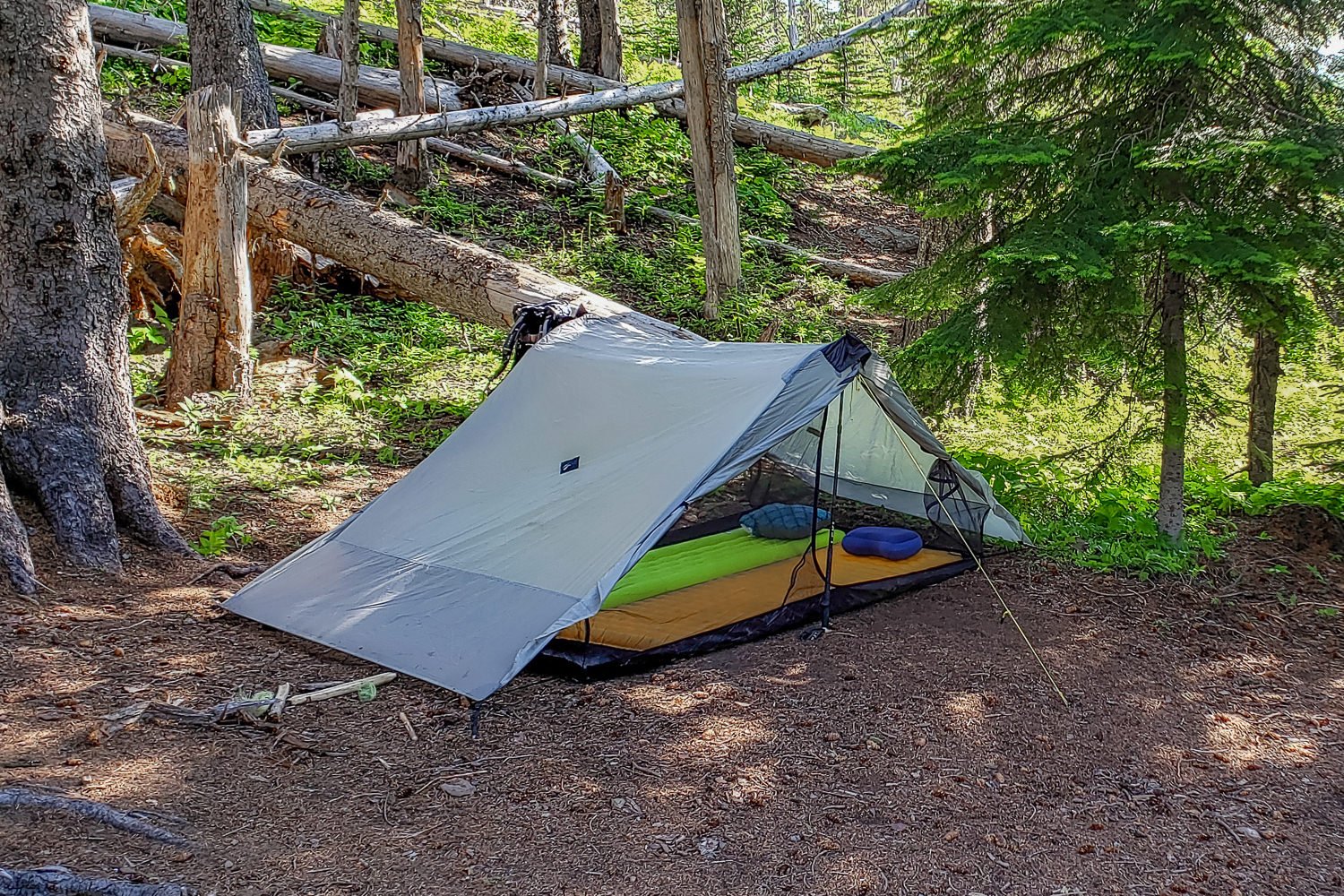
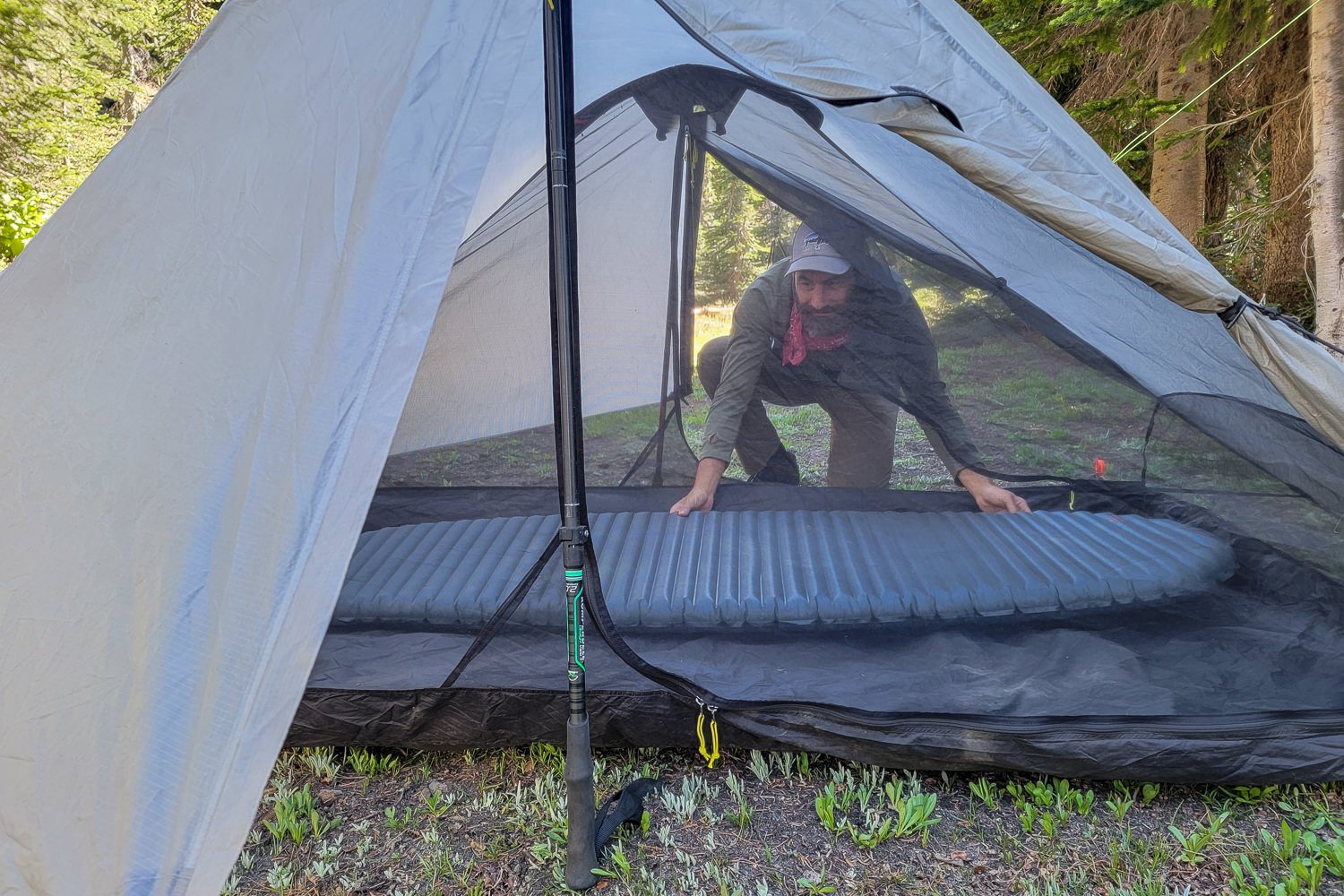
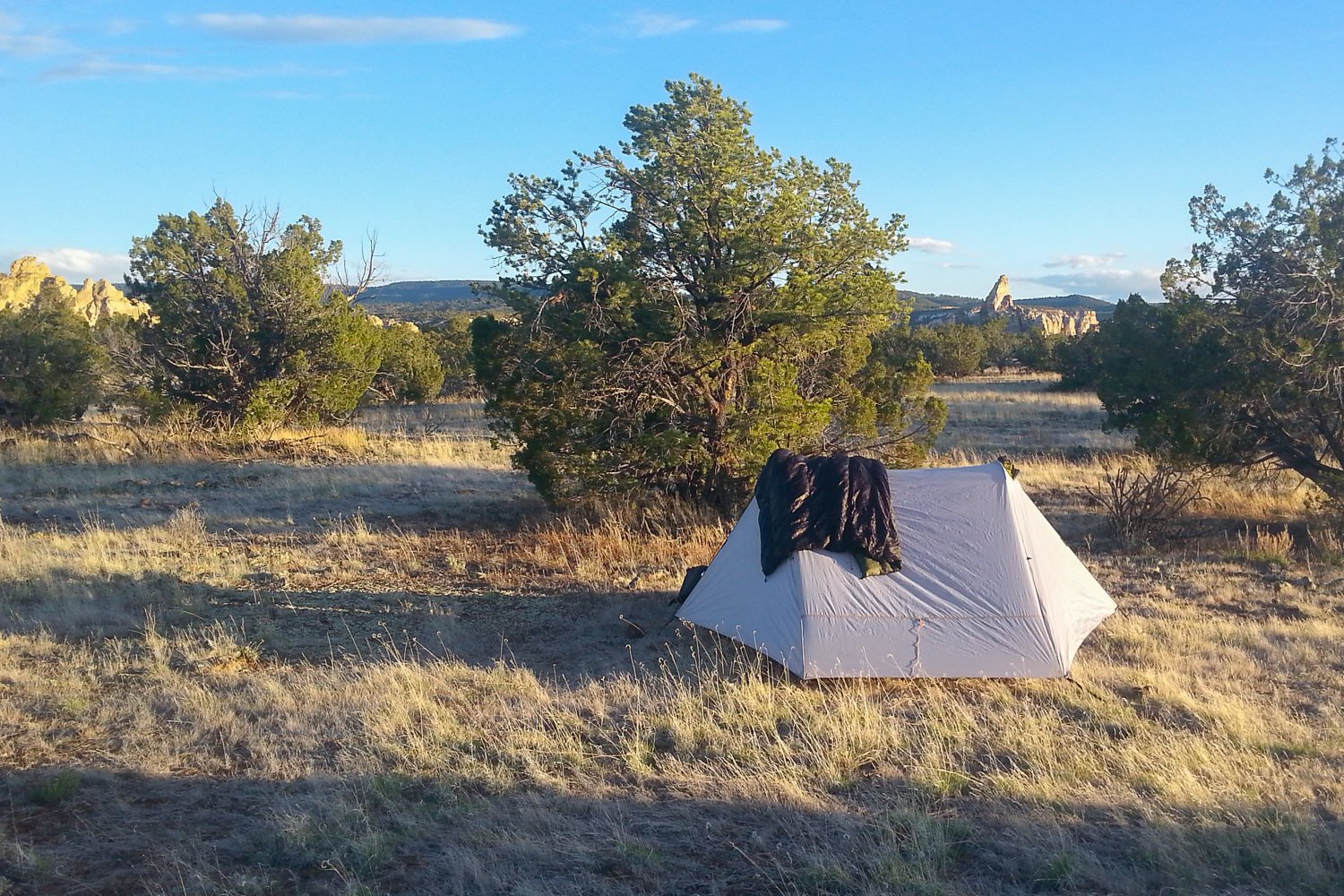
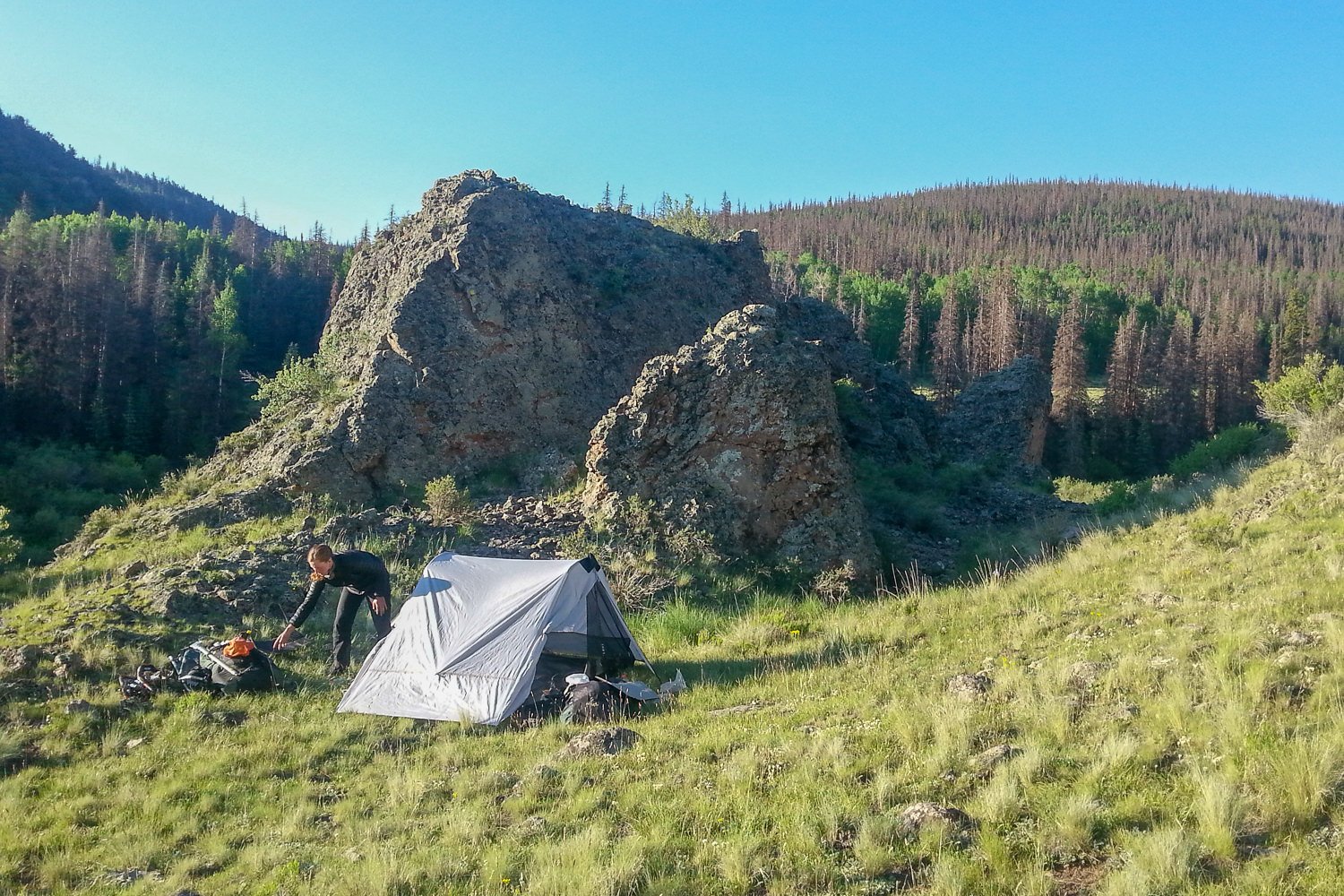
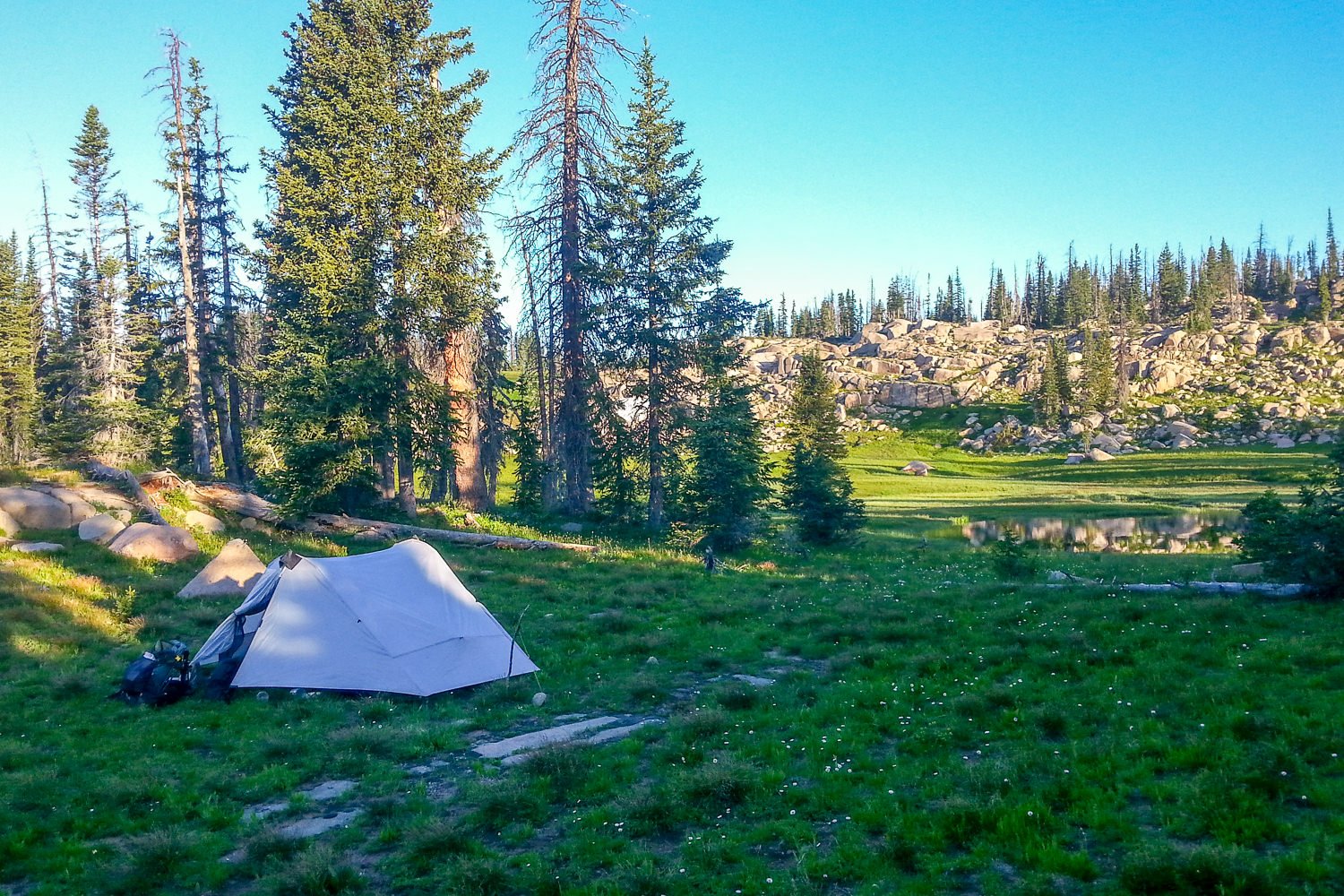
MORE INFORMATION
We hope this review helps you determine if the Six Moon Designs Lunar Duo is right for you. As always, please leave a comment below if you have any recommendations, questions, or suggestions or visit our Facebook page and Instagram to join the community conversation. If you found this review helpful, please share on social media and click the little heart button below to give us a digital high five!
If you liked this list, you’ll love the CleverHiker Gear Guide, where we test and recommend tons of outdoor adventure gear from a variety of categories. Here are some links to popular articles:
Some of the links on this page are affiliate links, which means we may receive a modest commission if purchases are made through those links. This adds no cost to our readers and helps us keep our site up and running. Our reputation is our most important asset, which is why we only provide completely honest and unbiased recommendations.




